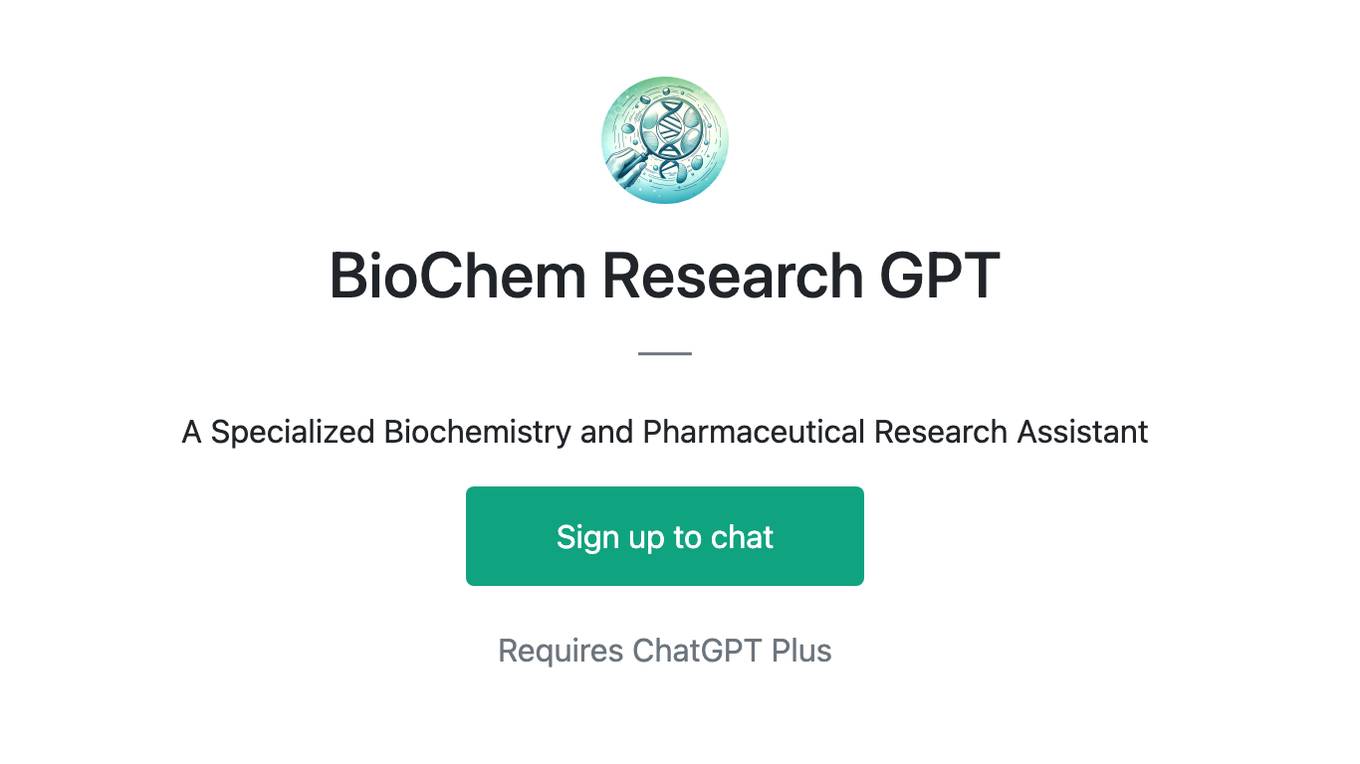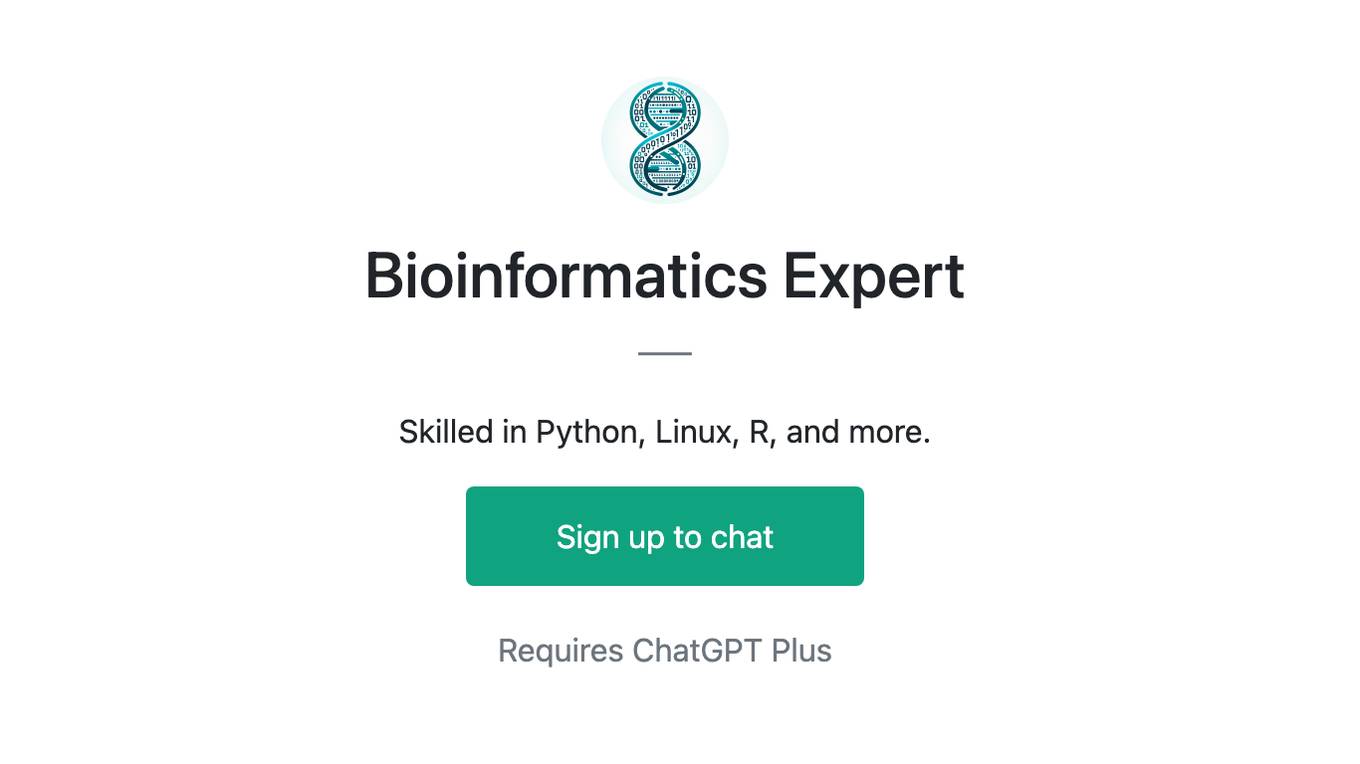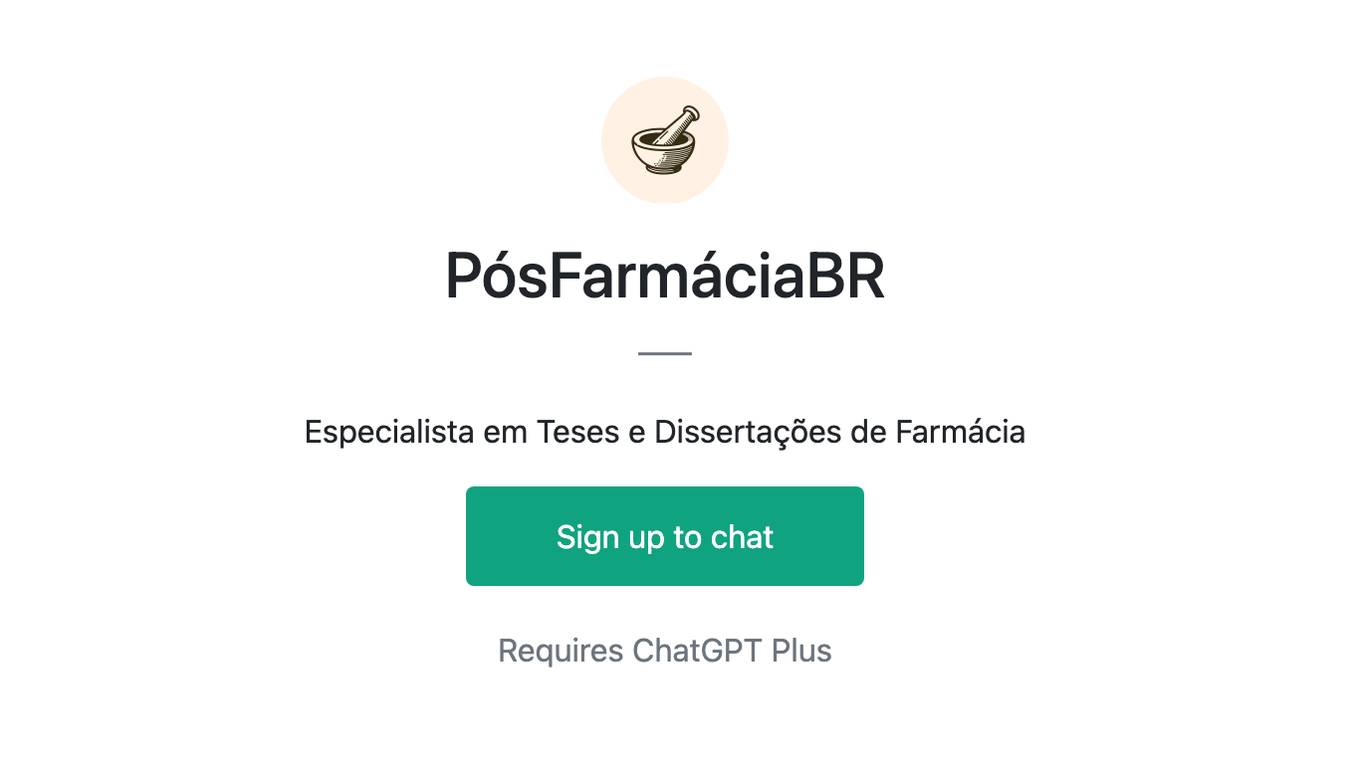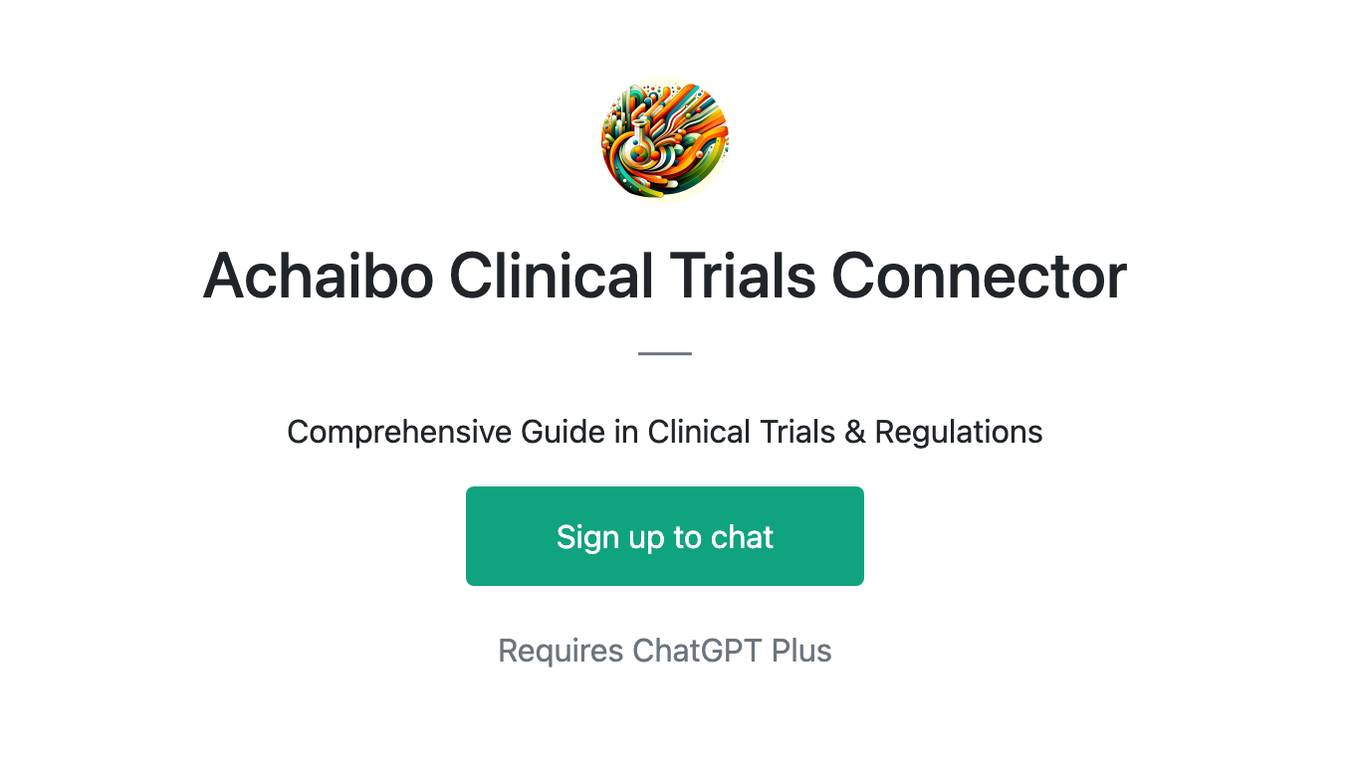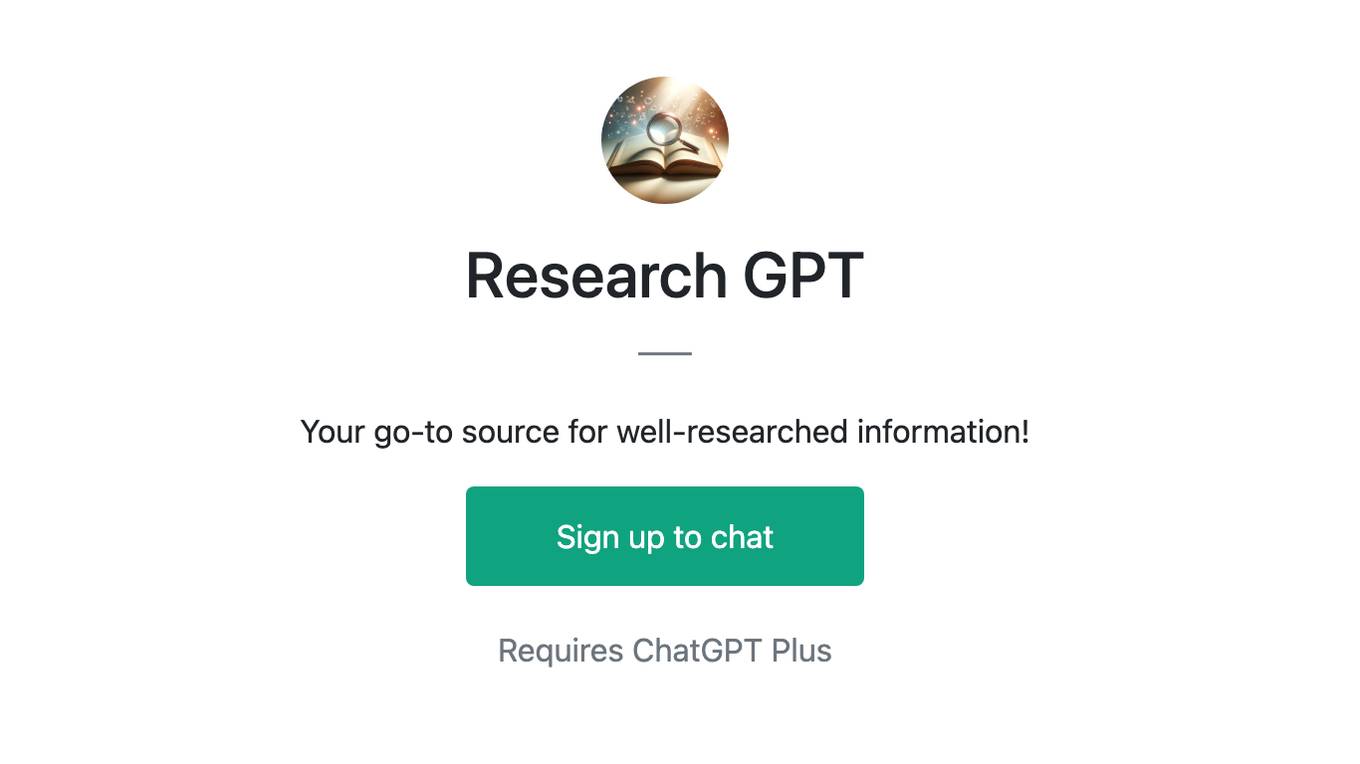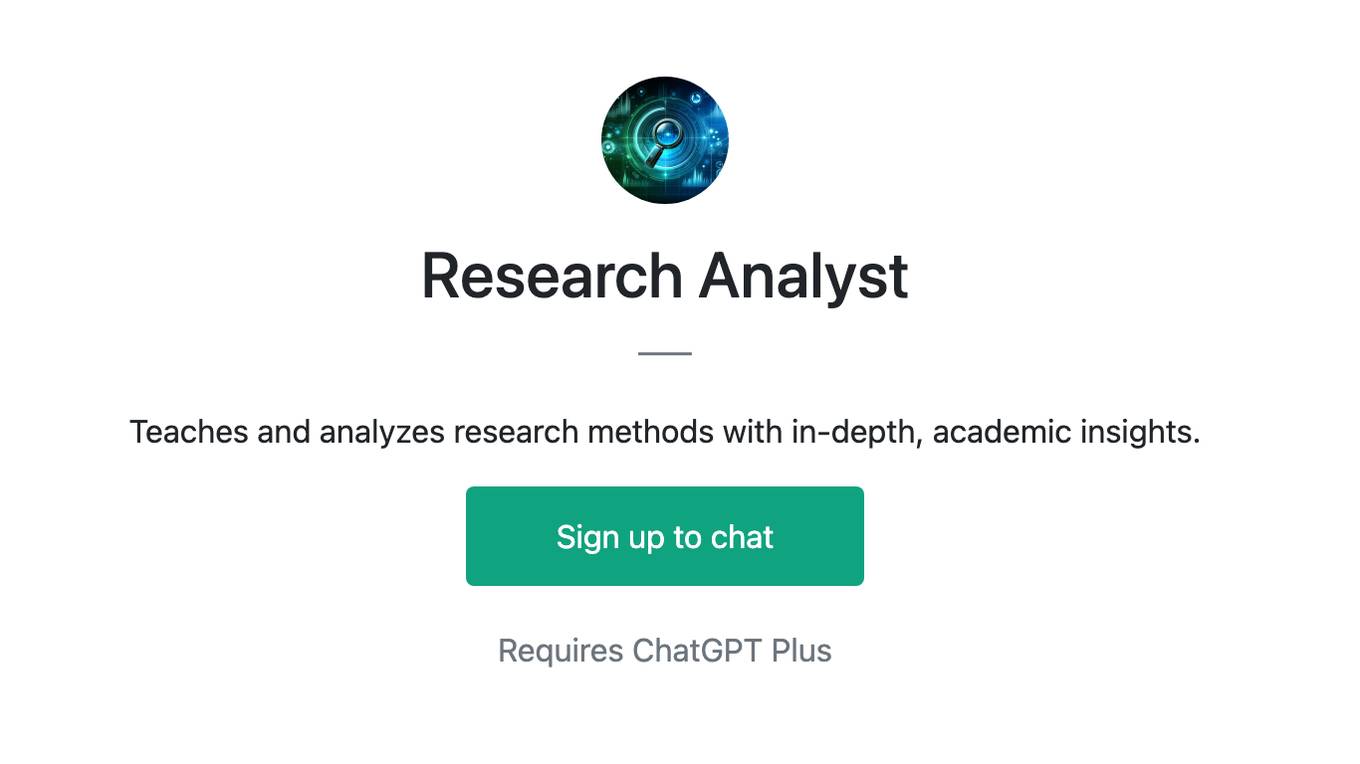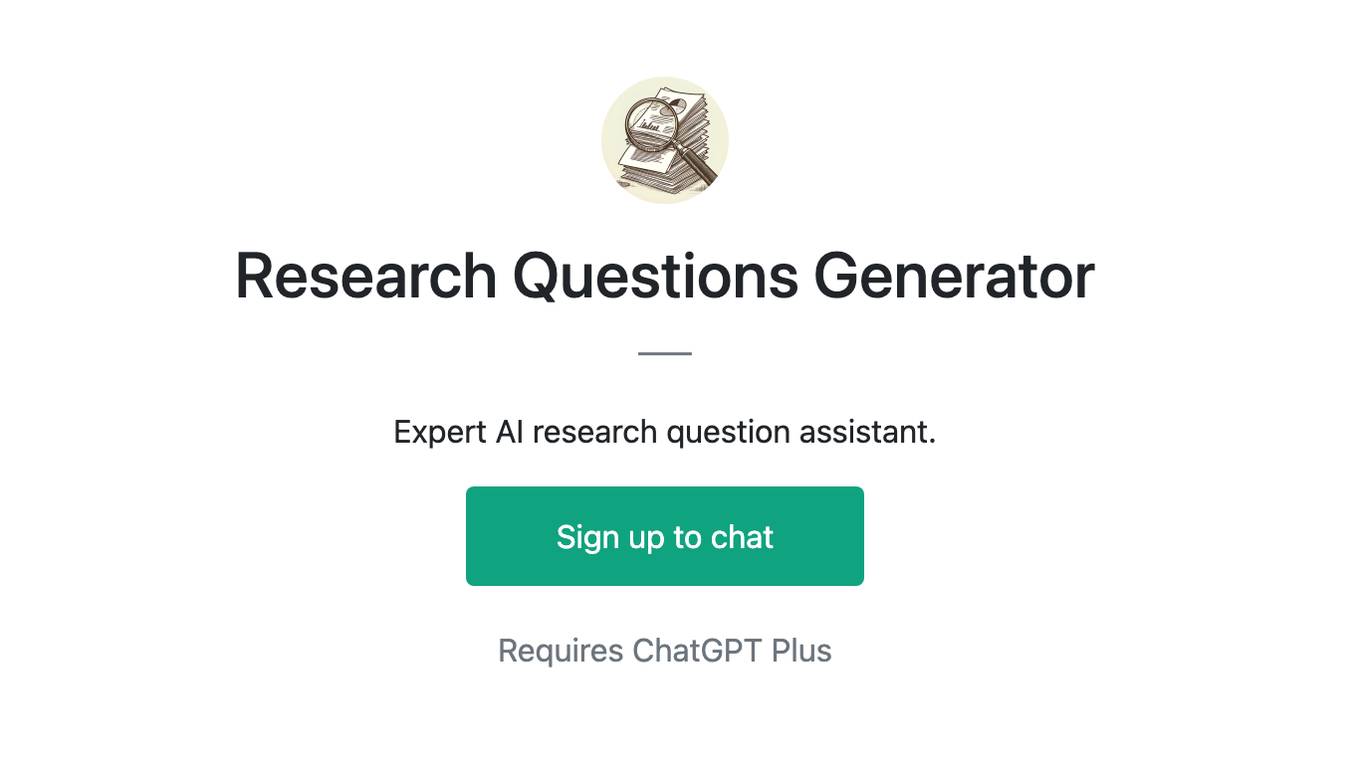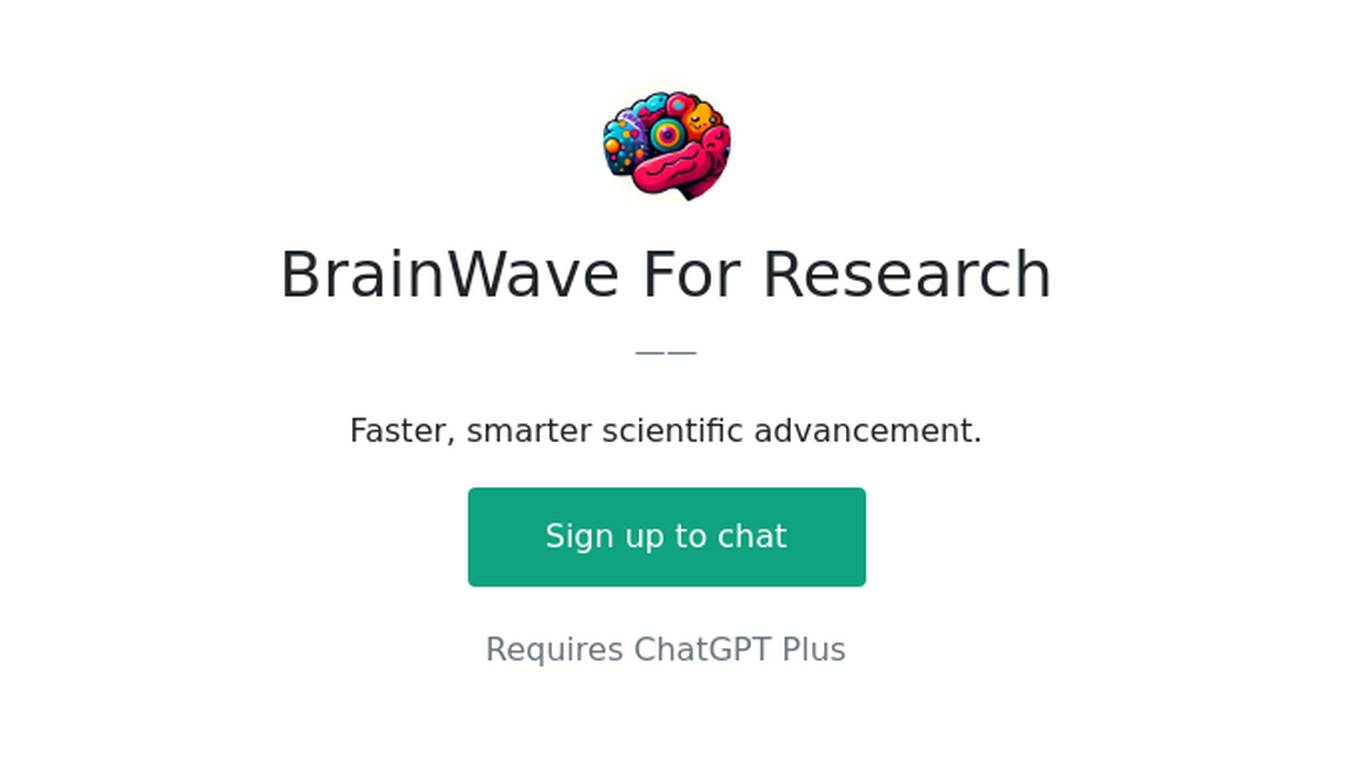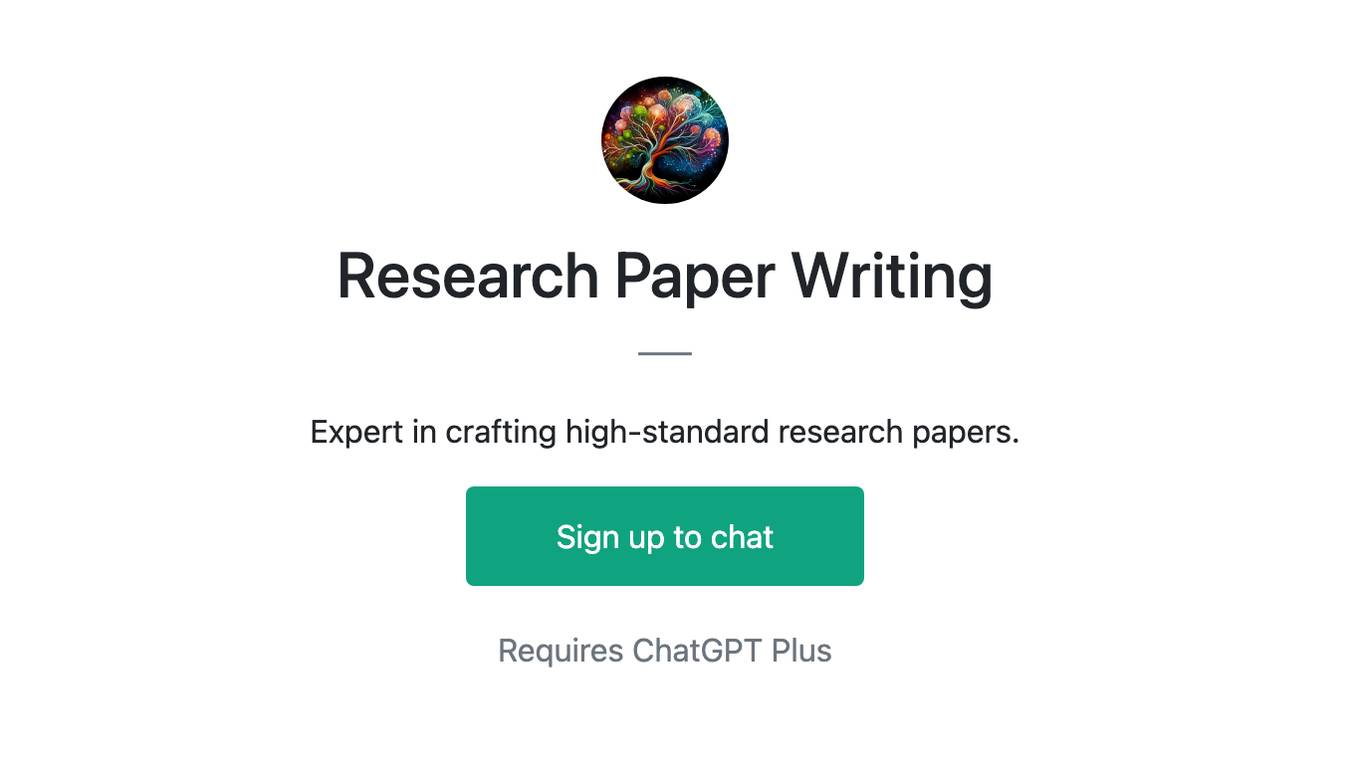Best AI tools for< Research Drug Side Effects >
20 - AI tool Sites
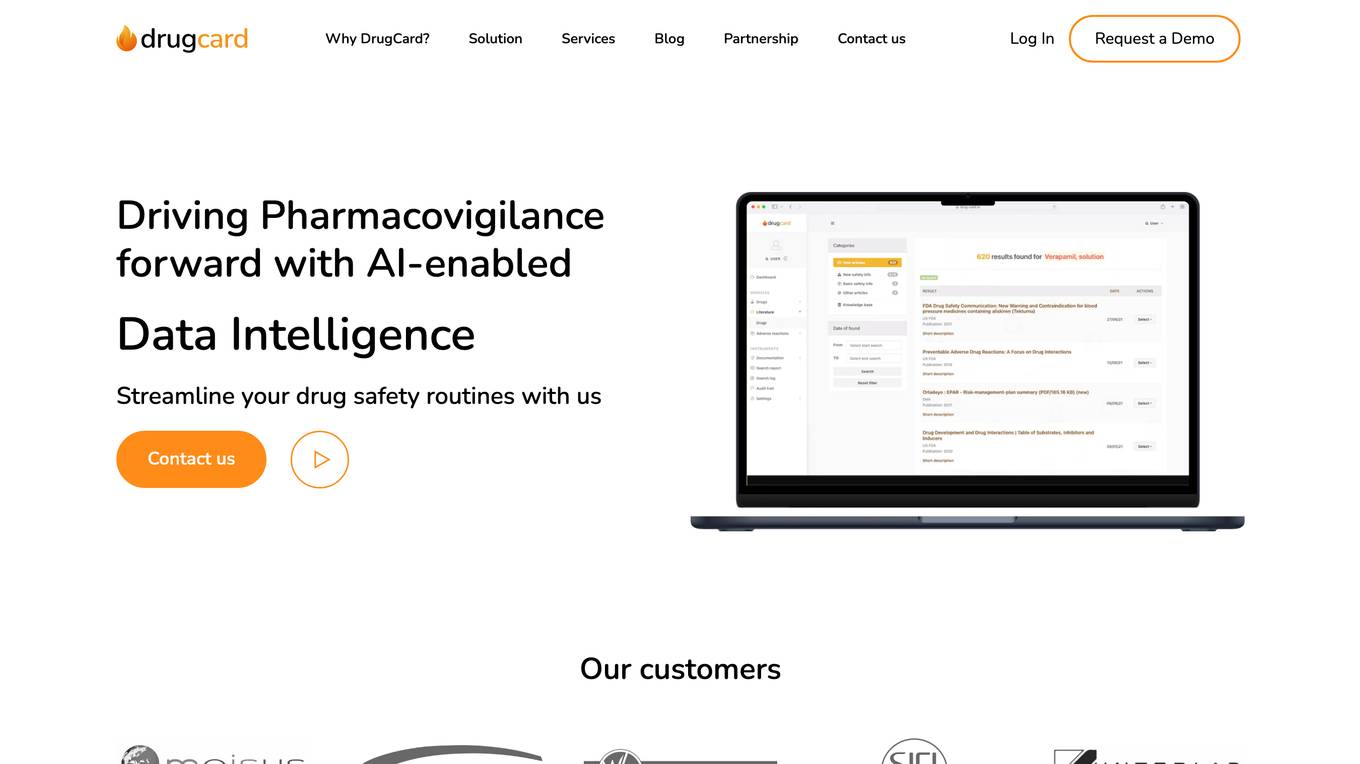
DrugCard
DrugCard is a comprehensive literature screening and pharmacovigilance solution that offers AI-driven automated pharmacovigilance services. The platform helps streamline drug safety routines by providing continuous and regular monitoring, traceable and transparent data, accurate and complete information, and scalability to new markets. DrugCard supports over 100 languages, covers 112+ countries, and monitors 2200+ local medical journals, resulting in a 60% time savings compared to manual approaches. The platform is designed for Contract Research Organizations (CROs), Marketing Authorization Holders (MAHs), and freelancers in the pharmaceutical industry.
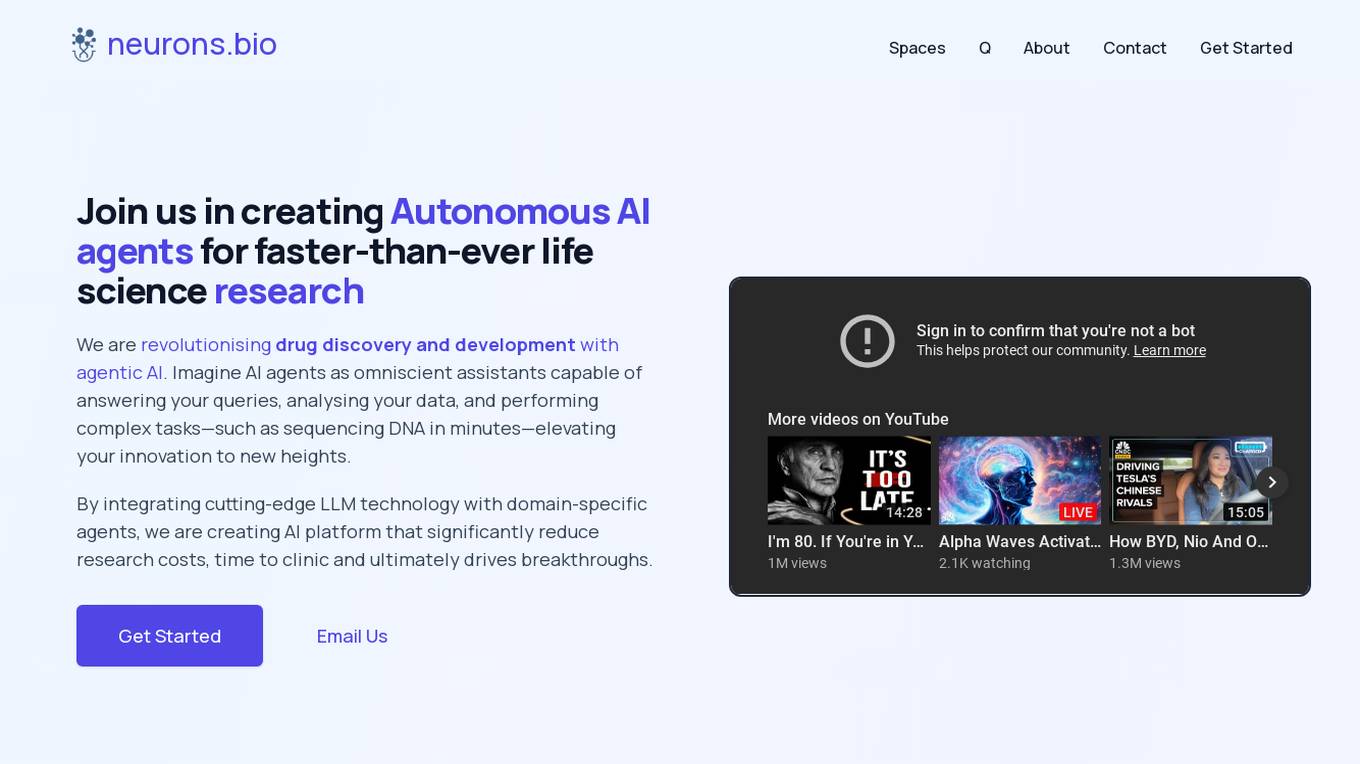
neurons.bio
neurons.bio is an AI application that offers a unique collection of over 100 AI agents designed for drug development, medicine, and life science research. These agents perform specific tasks efficiently, retrieve data from various sources, and provide insights to accelerate research processes. The platform aims to revolutionize drug discovery and development by integrating cutting-edge LLM technology with domain-specific agents, reducing research costs and time to clinic.
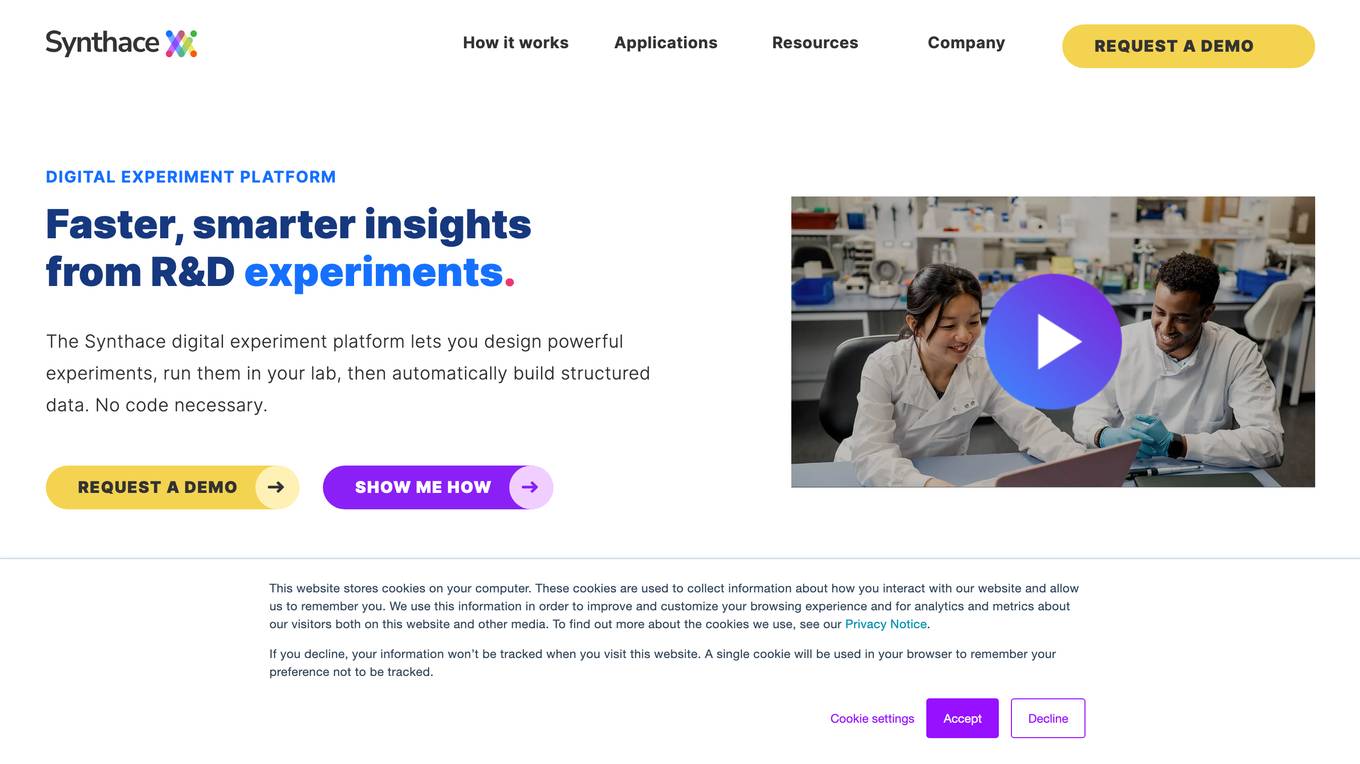
Synthace
Synthace is a software and expertise platform designed for Discovery Biology Teams to streamline and optimize their experiments in assay development, media optimization, and purification process development. The platform offers software solutions, training, and on-site support from specialists to help scientists conduct experiments more efficiently and effectively. By leveraging multifactorial methods and automation, Synthace aims to accelerate drug discovery processes and deliver faster, definitive results.

Intelligencia AI
Intelligencia AI is a leading provider of AI-powered solutions for the pharmaceutical industry. Our suite of solutions helps de-risk and enhance clinical development and decision-making. We use a combination of data, AI, and machine learning to provide insights into the probability of success for drugs across multiple therapeutic areas. Our solutions are used by many of the top global pharmaceutical companies to improve their R&D productivity and make more informed decisions.
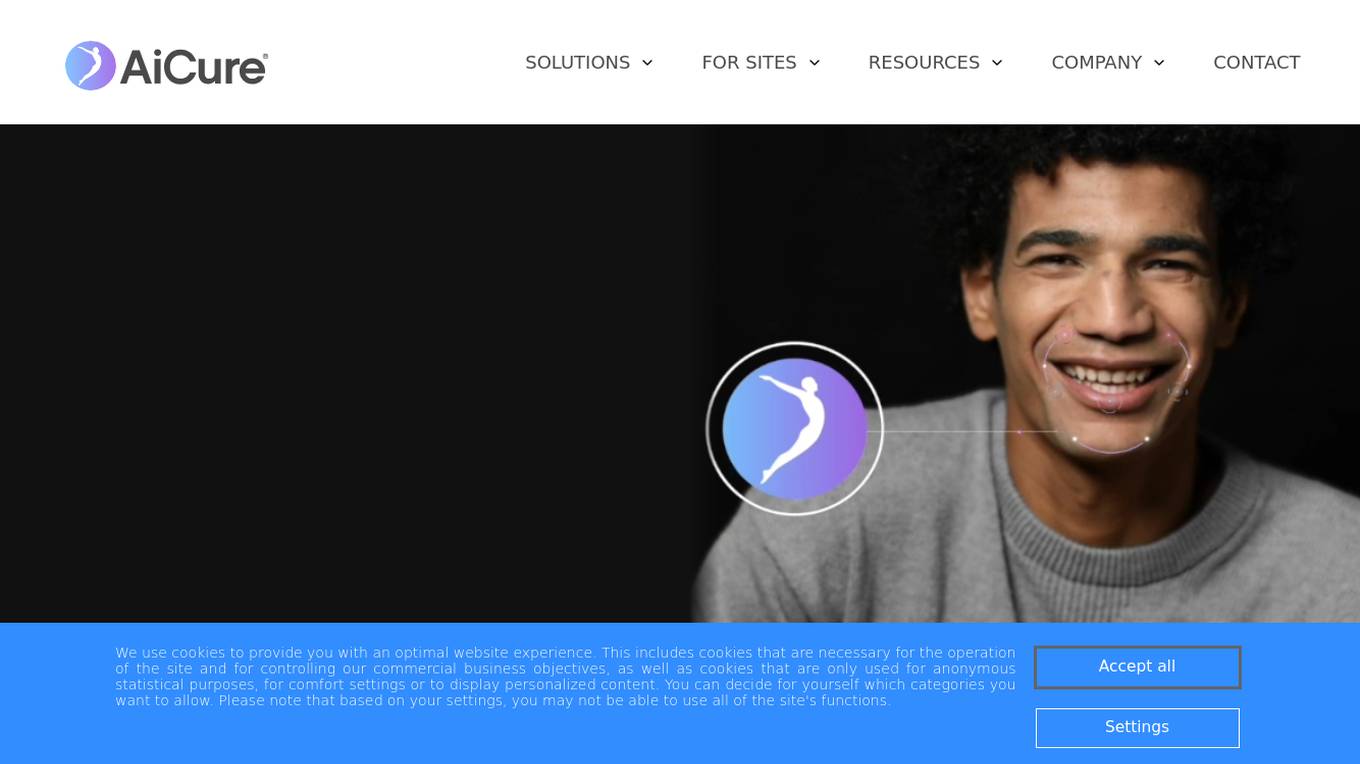
AiCure
AiCure provides a patient-centric eClinical trial management platform that enhances drug development through improved medication adherence rates, more powerful analysis and prediction of treatment response using digital biomarkers, and reduced clinical tech burden. AiCure's solutions support traditional, decentralized, or hybrid trials and offer flexibility to meet the needs of various research designs.
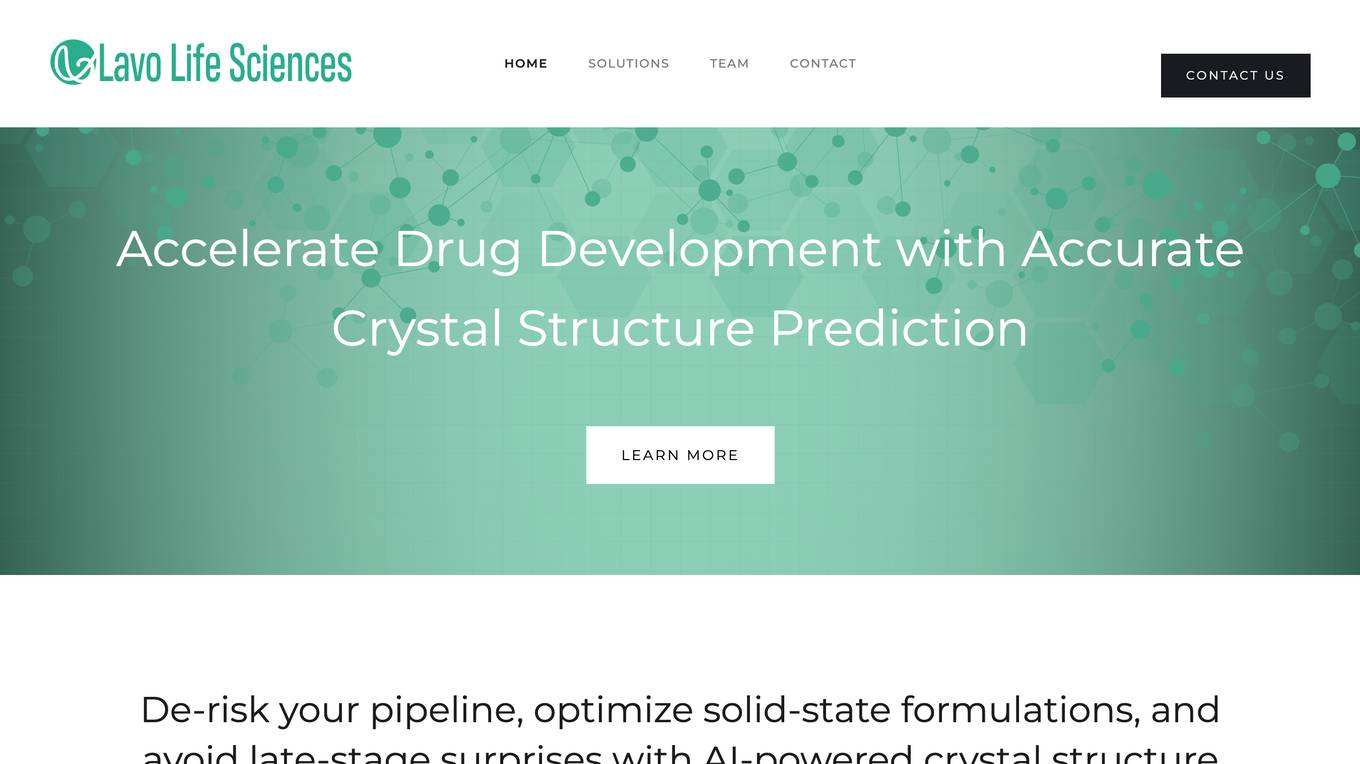
Lavo Life Sciences
Lavo Life Sciences is an AI-accelerated crystal structure prediction application that helps in drug development by providing accurate predictions for small molecule drugs. The application utilizes AI technology to optimize solid-state formulations, reduce turnaround time, mitigate risks, and discover novel polymorphs, ultimately streamlining the pharmaceutical research and development process.
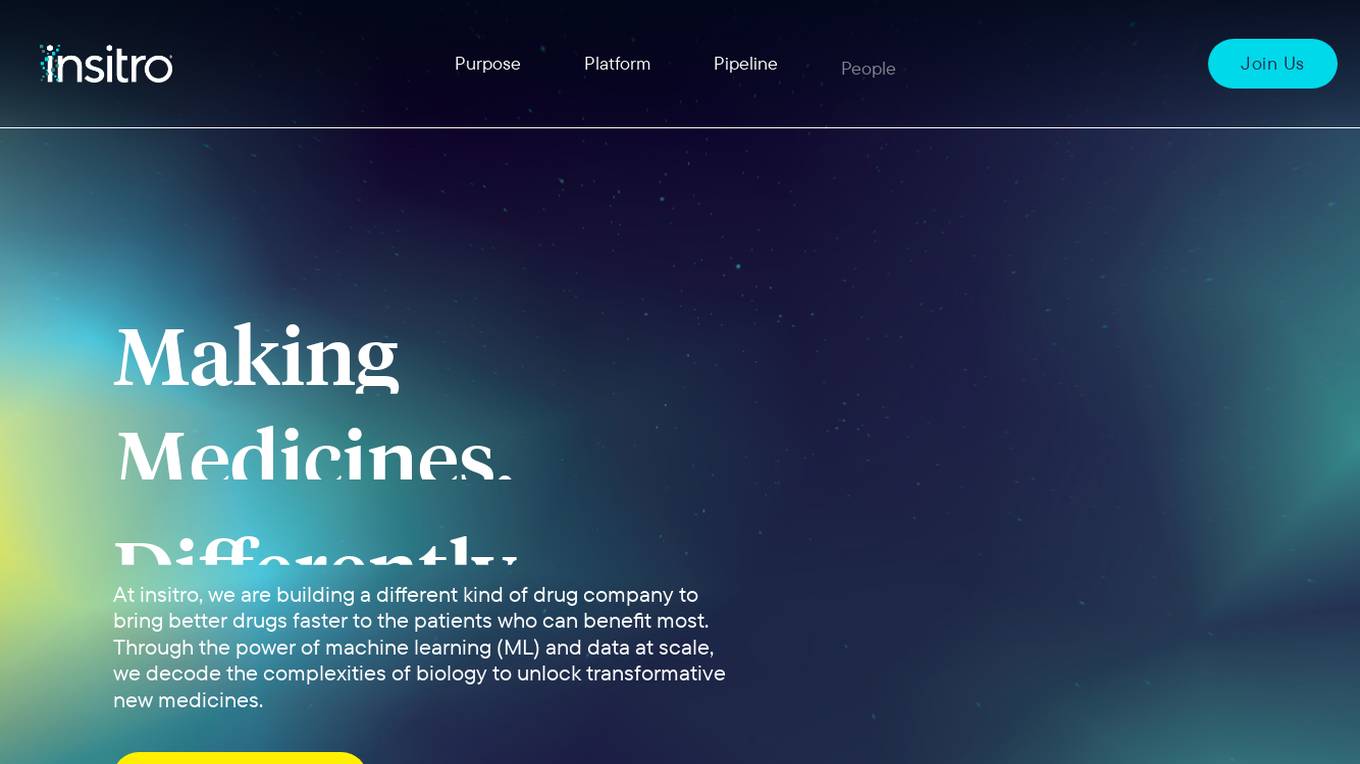
Insitro
Insitro is a drug discovery and development company that uses machine learning and data to identify and develop new medicines. The company's platform integrates in vitro cellular data produced in its labs with human clinical data to help redefine disease. Insitro's pipeline includes wholly-owned and partnered therapeutic programs in metabolism, oncology, and neuroscience.
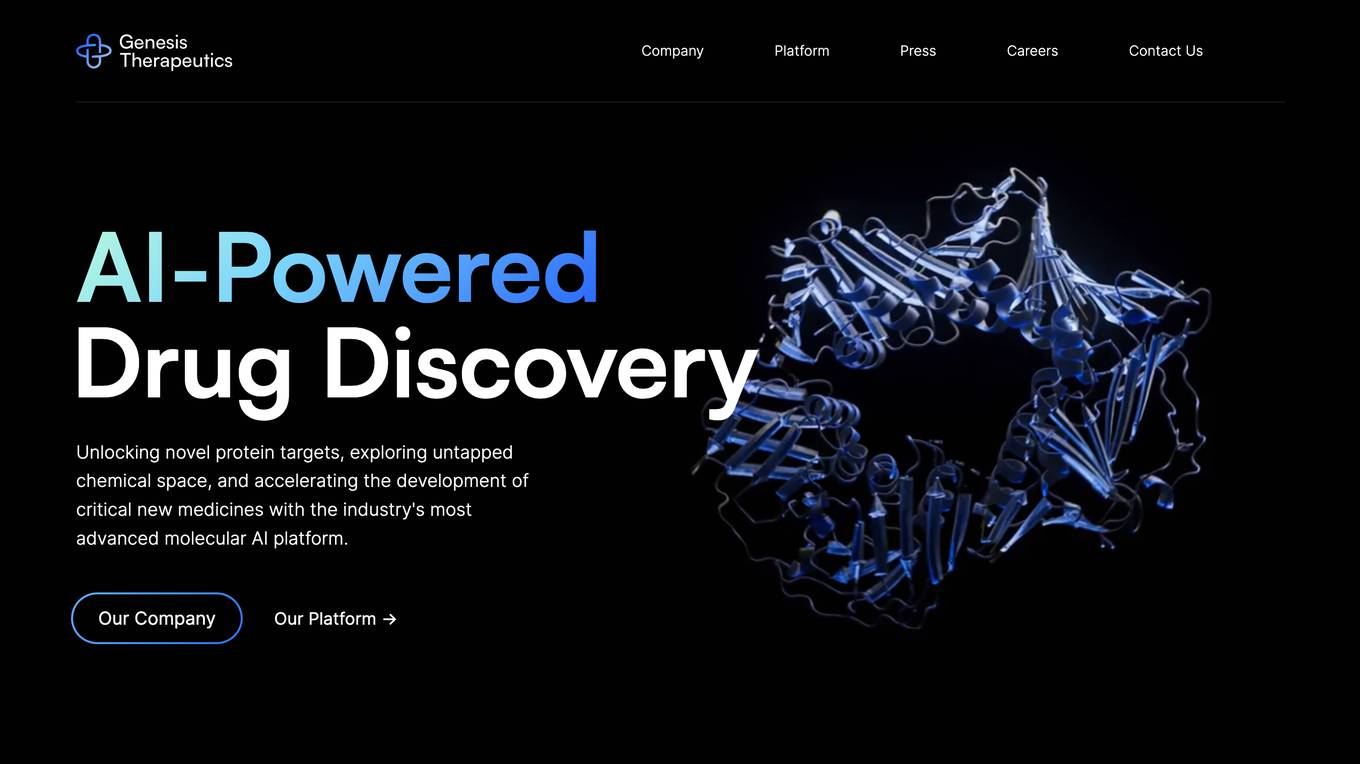
Genesis Molecular AI
Genesis Molecular AI is a pioneering molecular AI platform that builds and deploys GEMS, the AI Operating System for drug discovery. Their platform, including the model Pearl, empowers scientists to unlock tough protein targets and invent medicines with unprecedented potency and selectivity. Genesis combines AI and physics research to create a state-of-the-art platform for drug discovery, providing highly potent and selective drugs to address chemically complex targets. The company's success is attributed to a collaborative mix of minds across AI and biotech, working in iterative, interdisciplinary loops to discover and develop drugs for challenging targets.

Exscientia
Exscientia is a technology-driven drug design and development company that combines precision design with integrated experimentation to create more effective medicines for patients faster. They operate at the interfaces of human ingenuity, artificial intelligence (AI), automation, and physical engineering, pioneering the use of AI in drug discovery. Exscientia aims to change the underlying economics of drug discovery by rapidly advancing the best scientific ideas into medicines for patients.
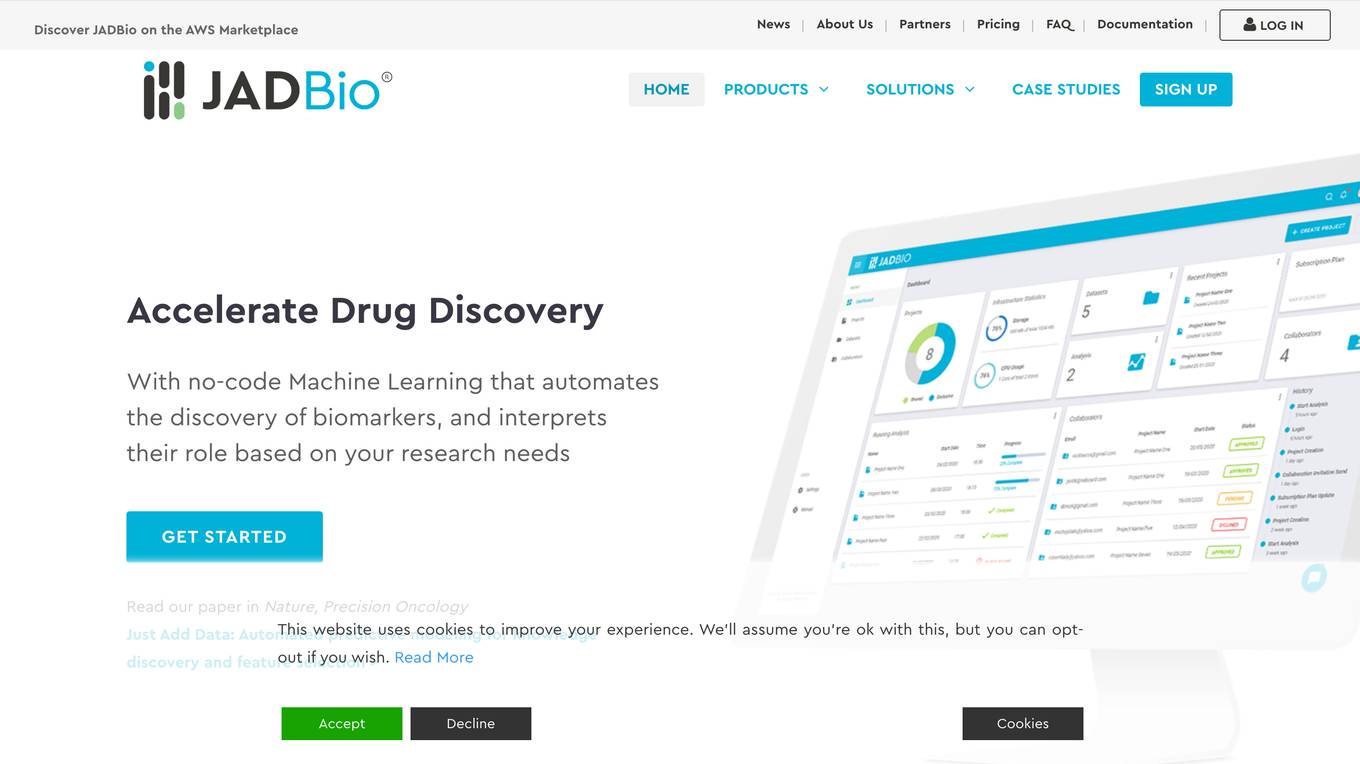
JADBio
JADBio is an automated machine learning (AutoML) platform designed to accelerate biomarker discovery and drug development processes. It offers a no-code solution that automates the discovery of biomarkers and interprets their role based on research needs. JADBio can parse multi-omics data, including genomics, transcriptome, metagenome, proteome, metabolome, phenotype/clinical data, and images, enabling users to efficiently discover insights for various conditions such as cancer, immune system disorders, chronic diseases, infectious diseases, and mental health. The platform is trusted by partners in precision health and medicine and is continuously evolving to disrupt drug discovery times and costs at all stages.
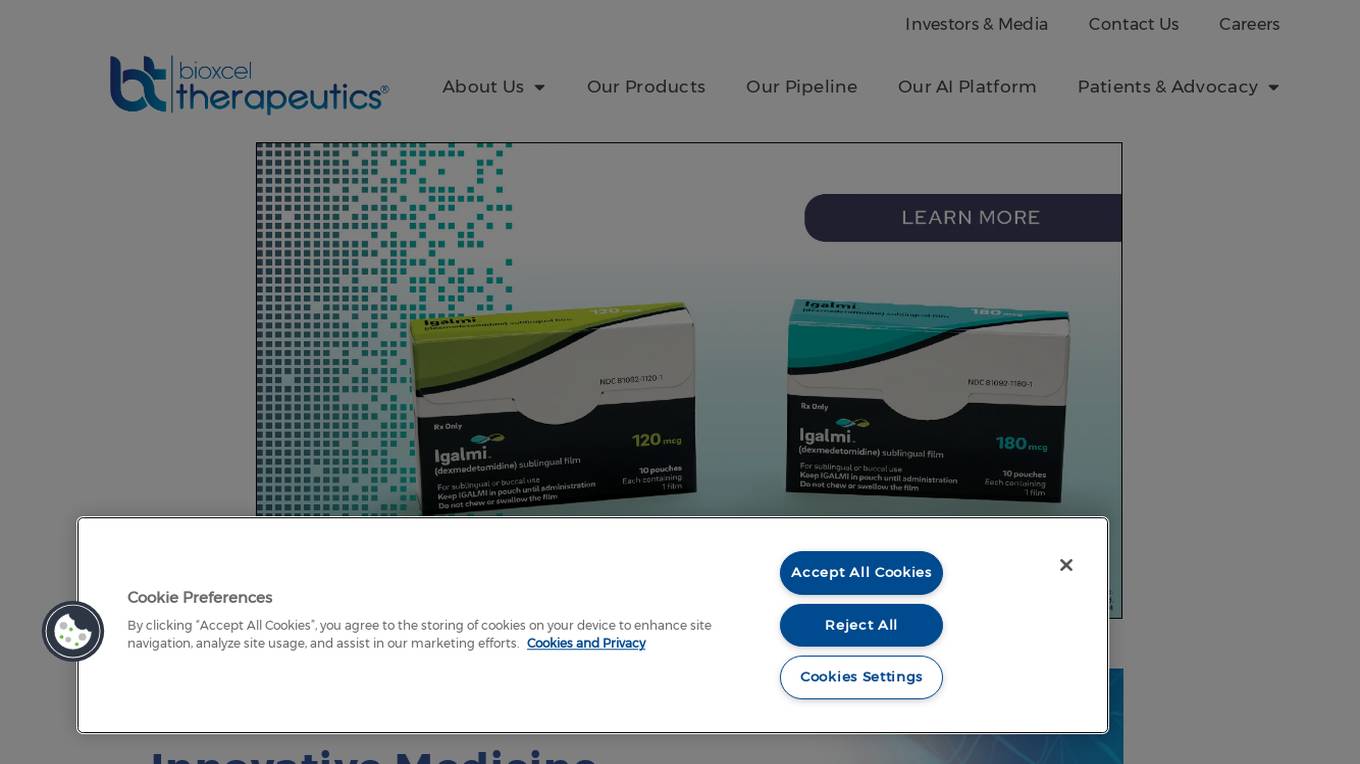
BioXcel Therapeutics
BioXcel Therapeutics, Inc. is a clinical-stage biopharmaceutical company developing transformative medicines in neuroscience and immuno-oncology utilizing artificial intelligence, or AI, techniques. The company's proprietary AI platform is used to identify, re-innovate, and develop potential new therapies. BioXcel Therapeutics has a pipeline of product candidates in various stages of development, including BXCL501 for agitation in dementia, BXCL701 for cocaine use disorder, and BXCL801 for acute suicidal ideation and behavior in patients with major depressive disorder.
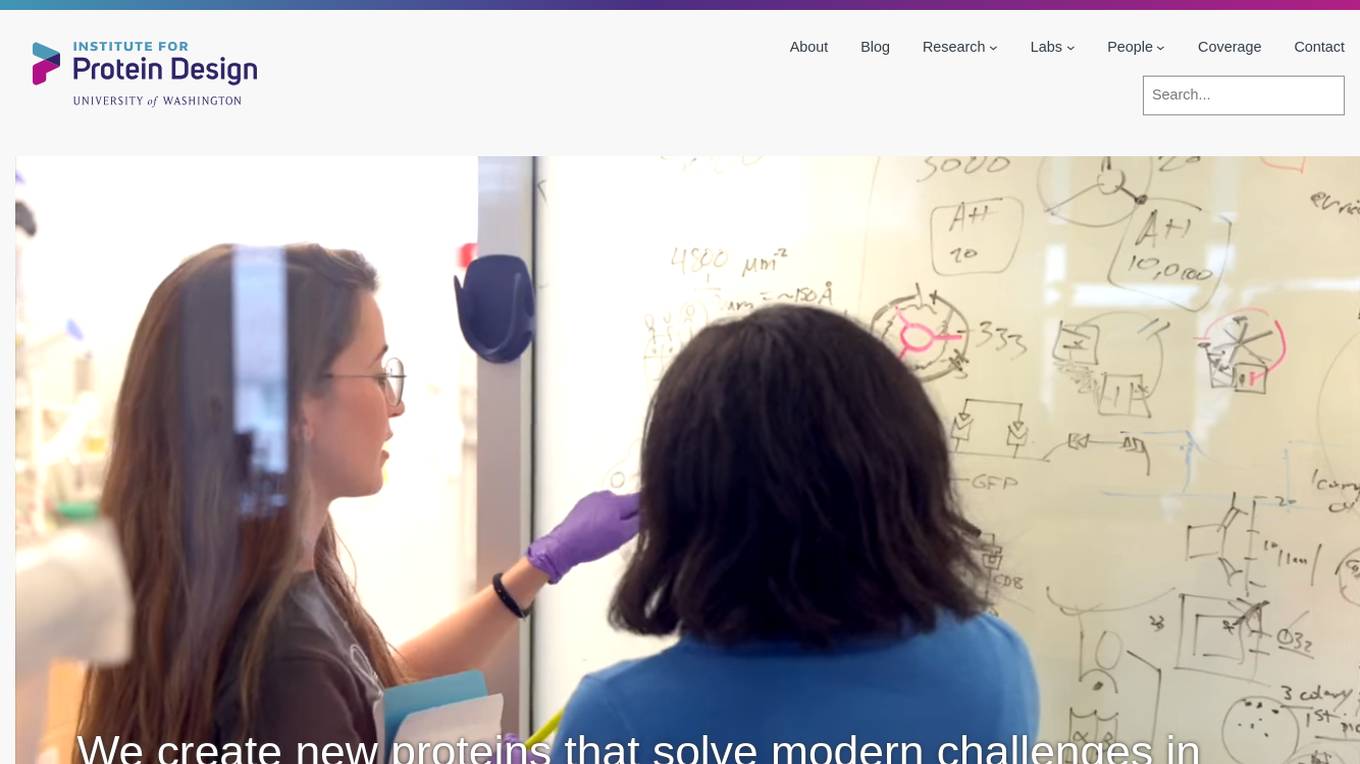
Institute for Protein Design
The Institute for Protein Design is a research institute at the University of Washington that uses computational design to create new proteins that solve modern challenges in medicine, technology, and sustainability. The institute's research focuses on developing new protein therapeutics, vaccines, drug delivery systems, biological devices, self-assembling nanomaterials, and bioactive peptides. The institute also has a strong commitment to responsible AI development and has developed a set of principles to guide its use of AI in research.
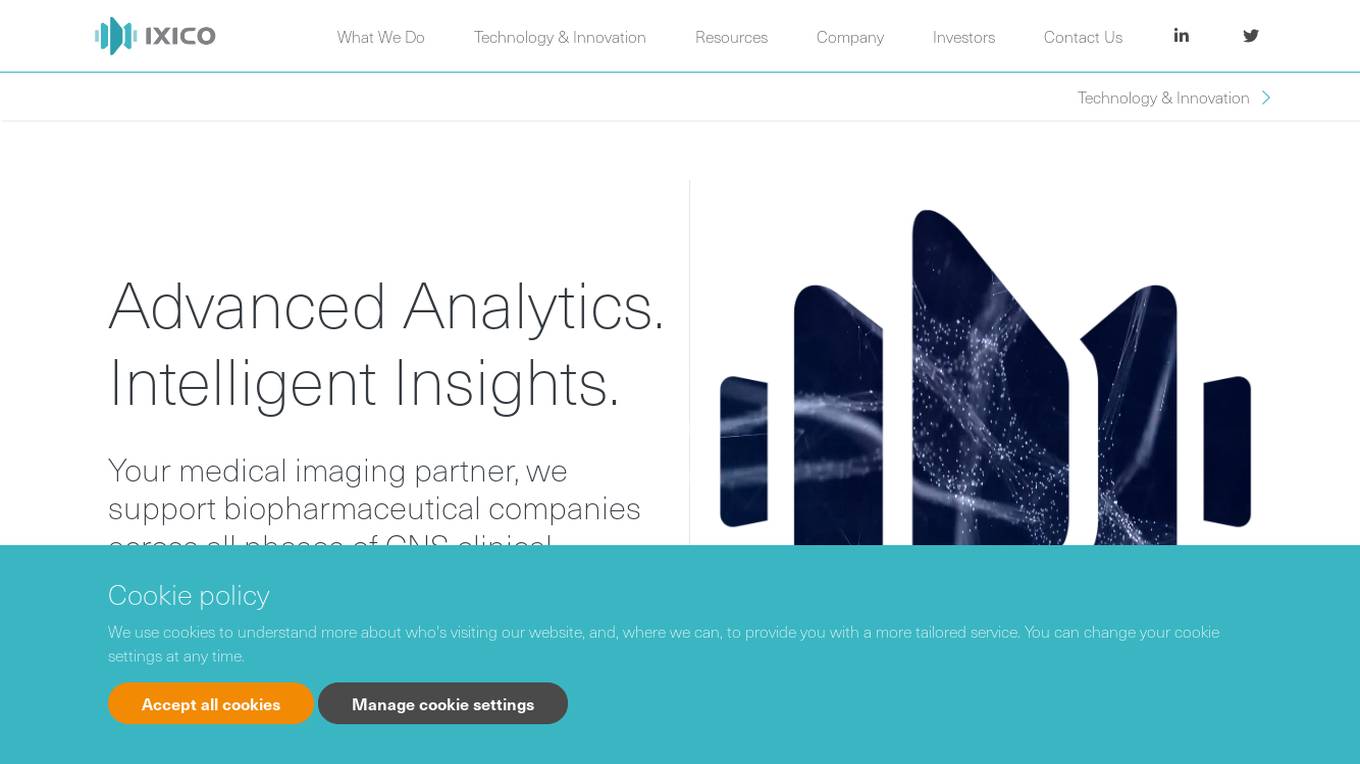
IXICO
IXICO is a precision analytics company specializing in intelligent insights in neuroscience. They offer a range of services for drug development analytics, imaging operations, and post-marketing consultancy. With a focus on technology and innovation, IXICO provides expertise in imaging biomarkers, radiological reads, volumetric MRI, PET & SPECT, and advanced MRI. Their TrialTracker platform and Assessa tool utilize innovation and AI for disease modeling and analysis. IXICO supports biopharmaceutical companies in CNS clinical research with cutting-edge neuroimaging techniques and AI technology.
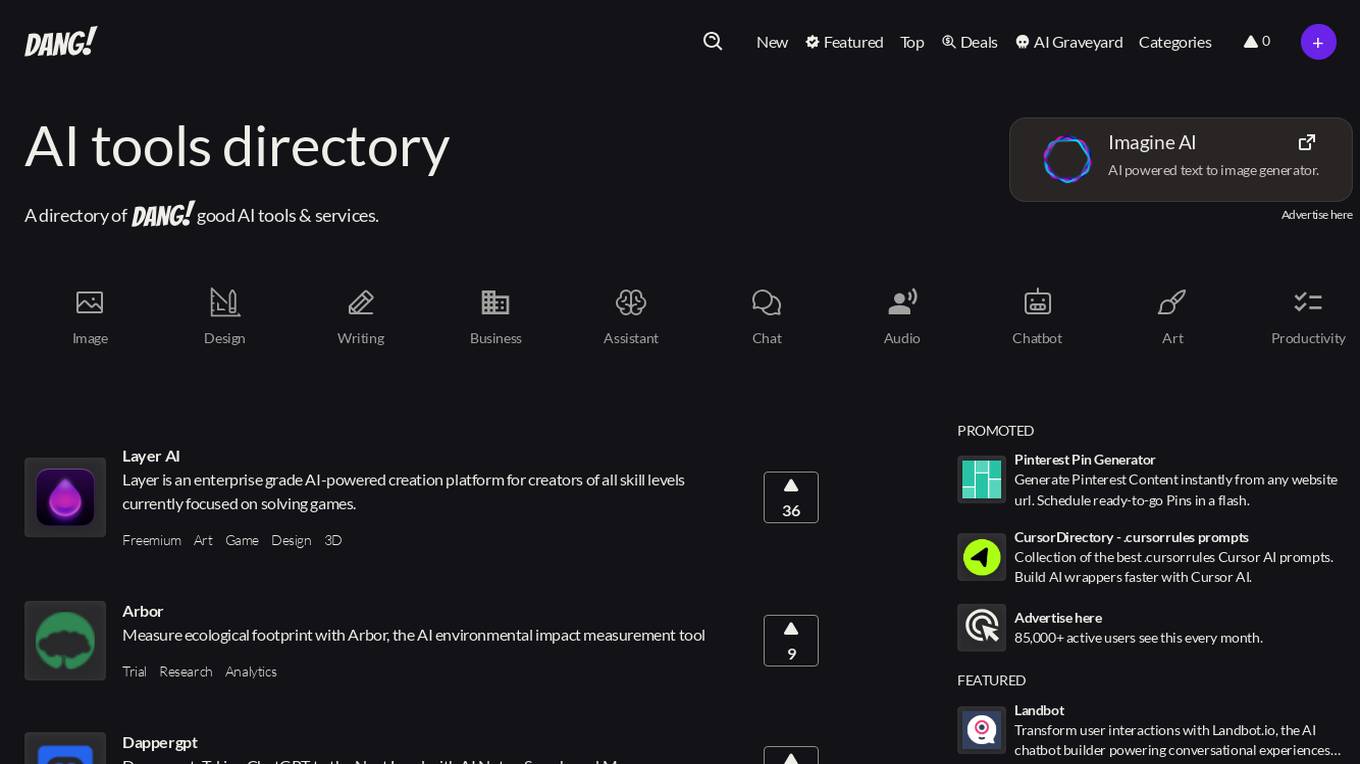
Dang.ai
Dang.ai is an AI Tools Directory that provides a comprehensive list of AI tools and services. It offers a platform for users to discover and explore various AI-powered applications across different categories such as image design, writing, business, chat, audio, chatbot, art, productivity, video, TTS, marketing, code search, and more. Users can find tools for automating emails, marketing strategies, content optimization, video summarization, writing enhancement, anime art generation, web accessibility, survey platforms, sketch rendering, content generation, highlight finding, web accessibility, digital commerce insights, study tools, photo editing, drug development, media creation, logo design, and much more.
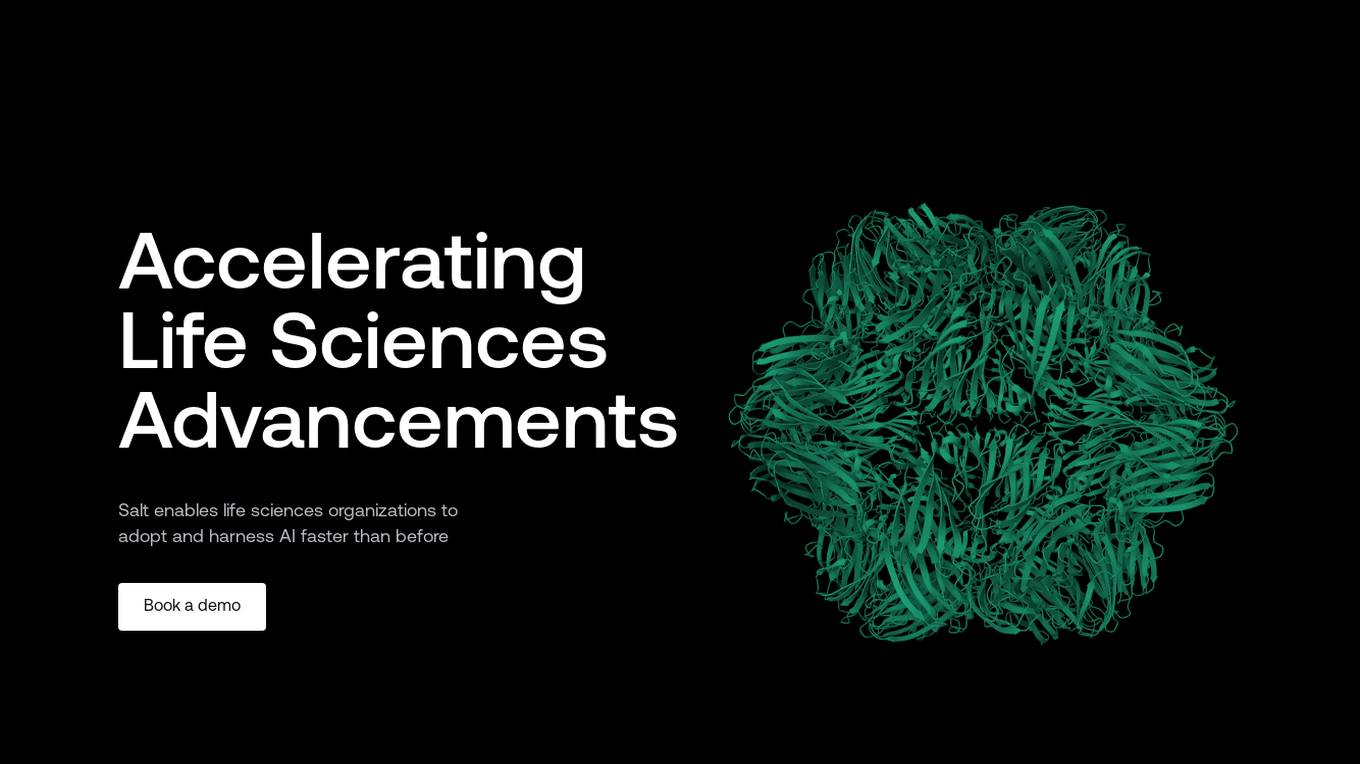
Salt AI
Salt AI is a development engine tailored for life sciences organizations, aiming to accelerate advancements in the field by enabling faster adoption and utilization of AI technologies. The platform offers reliable and reproducible AI processes, optimized for speed and efficiency, and promotes transparency and collaboration within workflows. With a focus on supporting best-in-class life sciences research models, Salt AI empowers users to enhance their understanding of biological processes through flexible and performant AI solutions.

Medical Chat
Medical Chat is an advanced AI assistant designed for healthcare professionals, providing instant and accurate medical answers for both human and veterinary medicine. Its capabilities include diagnosing medical conditions, generating differential diagnosis reports, creating patient-specific clinic plans, and offering comprehensive drug information. Medical Chat utilizes the latest LLM models, including ChatGPT 3.5 and 4.0, to deliver reliable and up-to-date medical knowledge. The platform also features a vast database of professional medical textbooks, veterinary books, and PubMed articles, ensuring evidence-based responses. With its HIPAA compliance and commitment to data privacy, Medical Chat empowers healthcare providers to enhance their diagnostic capabilities and improve patient outcomes.

CCN
CCN is a website providing news, analysis, and guides related to cryptocurrencies, blockchain technology, and AI developments. The platform covers a wide range of topics including crypto investing, exchanges, gambling, technology advancements, and regulatory updates. With a focus on delivering accurate and up-to-date information, CCN aims to educate and inform its audience about the latest trends and developments in the crypto and AI industries.

Google Research
Google Research is a leading research organization focusing on advancing science and artificial intelligence. They conduct research in various domains such as AI/ML foundations, responsible human-centric technology, science & societal impact, computing paradigms, and algorithms & optimization. Google Research aims to create an environment for diverse research across different time scales and levels of risk, driving advancements in computer science through fundamental and applied research. They publish hundreds of research papers annually, collaborate with the academic community, and work on projects that impact technology used by billions of people worldwide.

Google Research
Google Research is a team of scientists and engineers working on a wide range of topics in computer science, including artificial intelligence, machine learning, and quantum computing. Our mission is to advance the state of the art in these fields and to develop new technologies that can benefit society. We publish hundreds of research papers each year and collaborate with researchers from around the world. Our work has led to the development of many new products and services, including Google Search, Google Translate, and Google Maps.
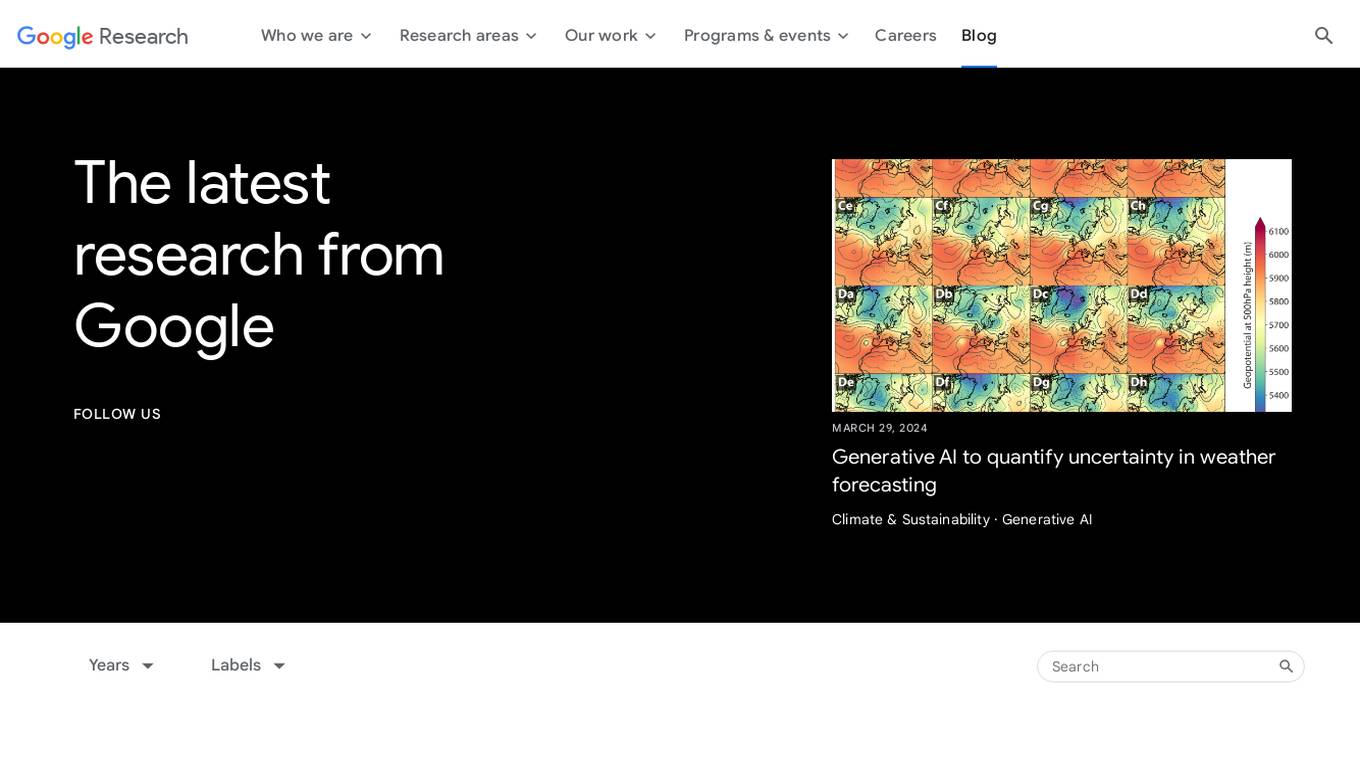
Google Research Blog
The Google Research Blog is a platform for researchers at Google to share their latest work in artificial intelligence, machine learning, and other related fields. The blog covers a wide range of topics, from theoretical research to practical applications. The goal of the blog is to provide a forum for researchers to share their ideas and findings, and to foster collaboration between researchers at Google and around the world.
0 - Open Source AI Tools
20 - OpenAI Gpts
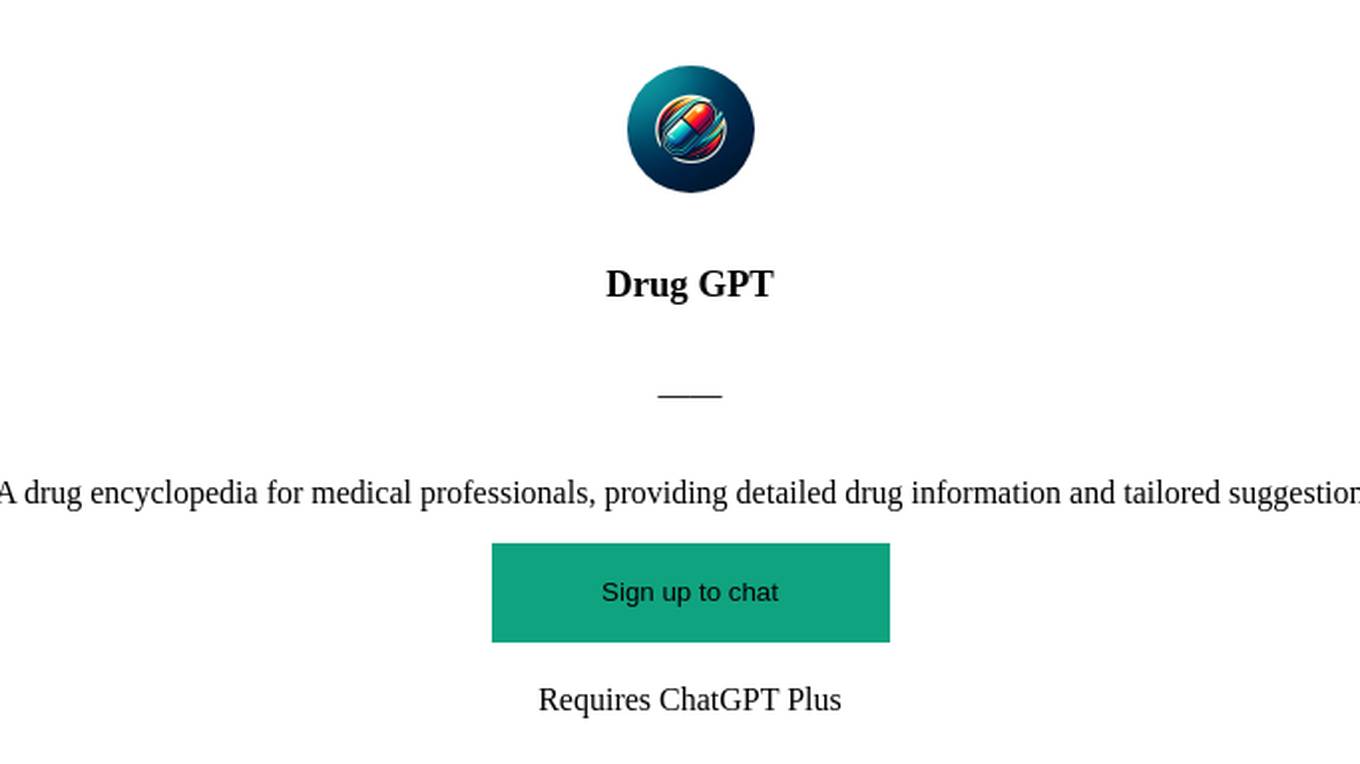
Drug GPT
A drug encyclopedia for medical professionals, providing detailed drug information and tailored suggestions.
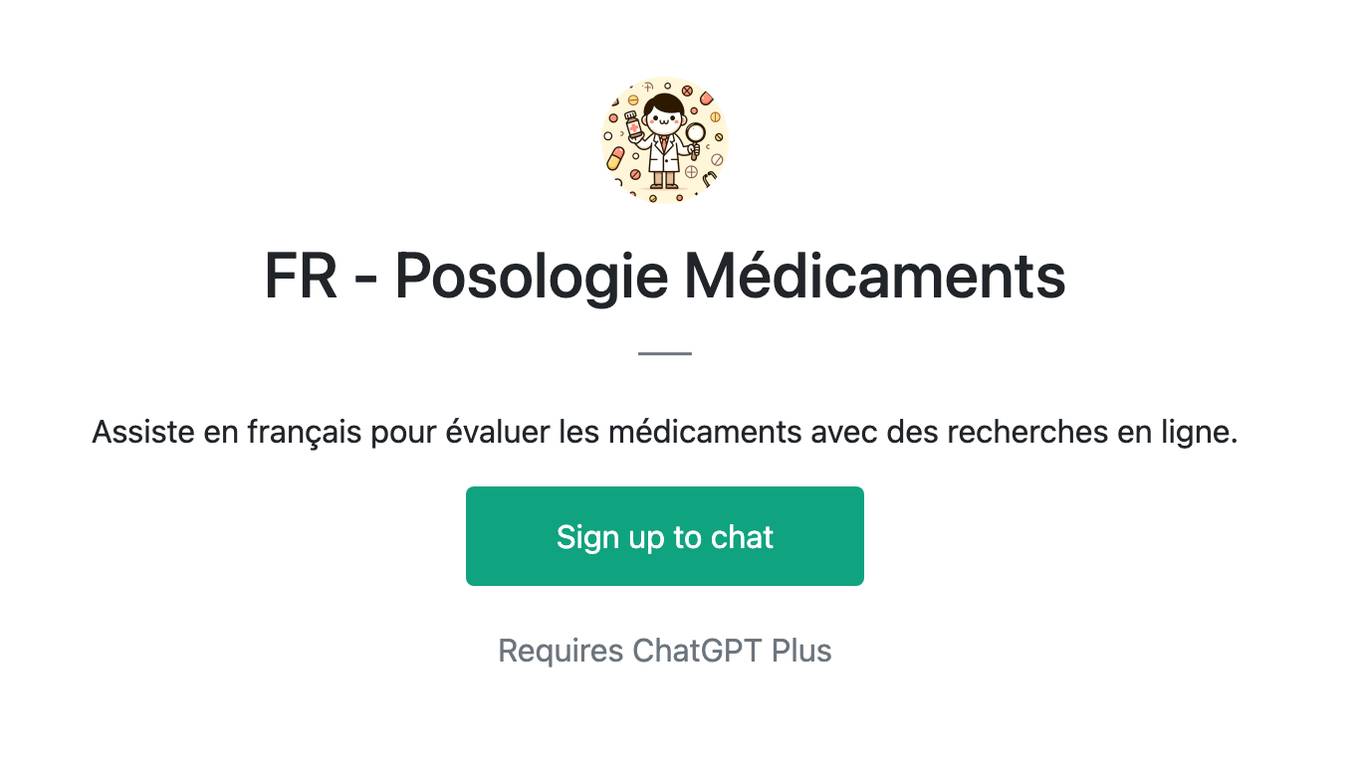
FR - Posologie Médicaments
Assiste en français pour évaluer les médicaments avec des recherches en ligne.
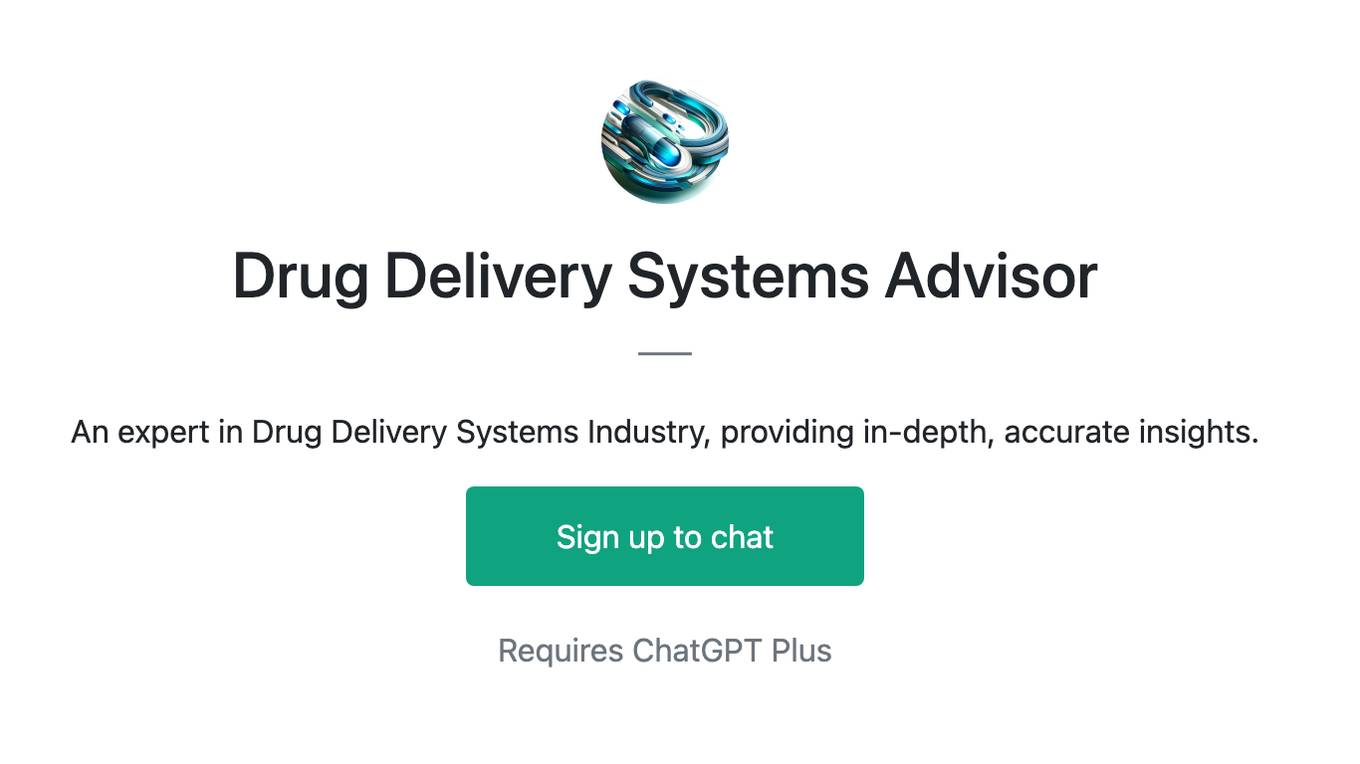
Drug Delivery Systems Advisor
An expert in Drug Delivery Systems Industry, providing in-depth, accurate insights.
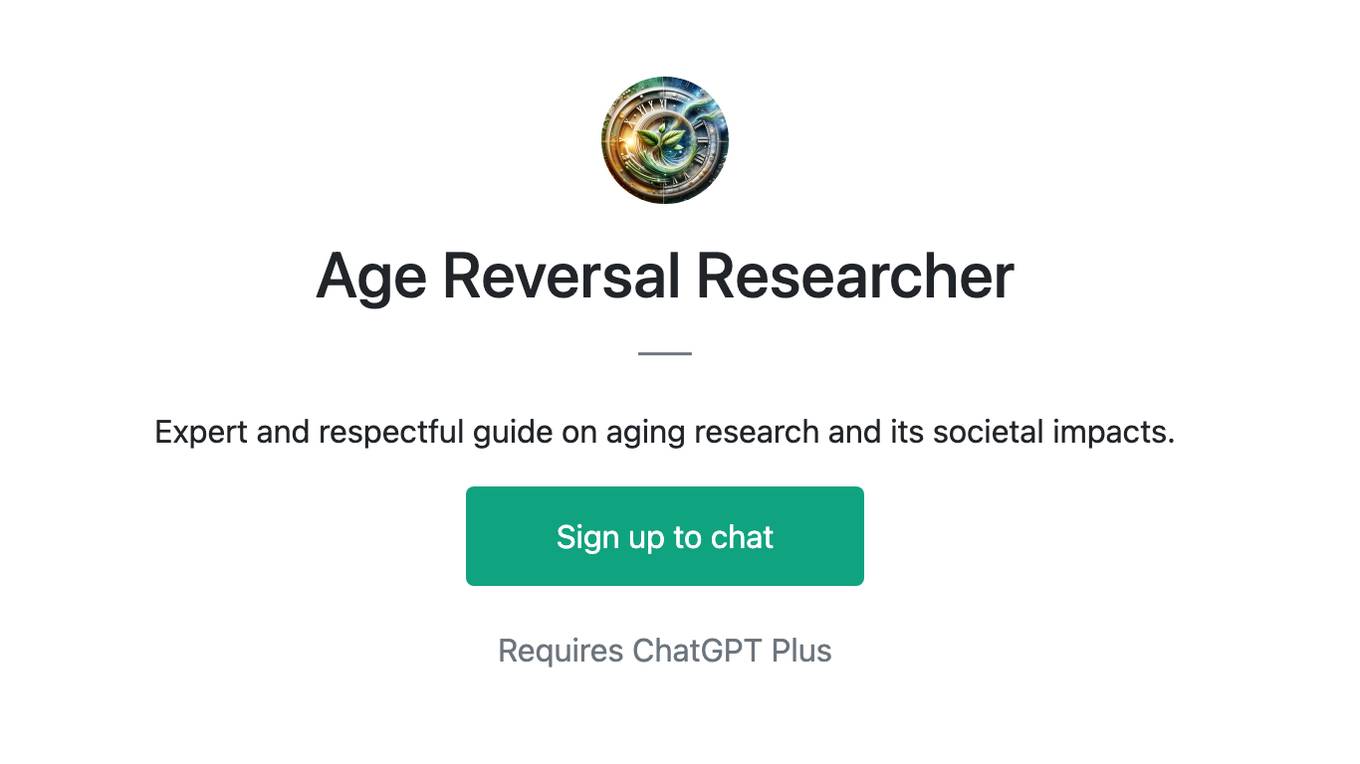
Age Reversal Researcher
Expert and respectful guide on aging research and its societal impacts.
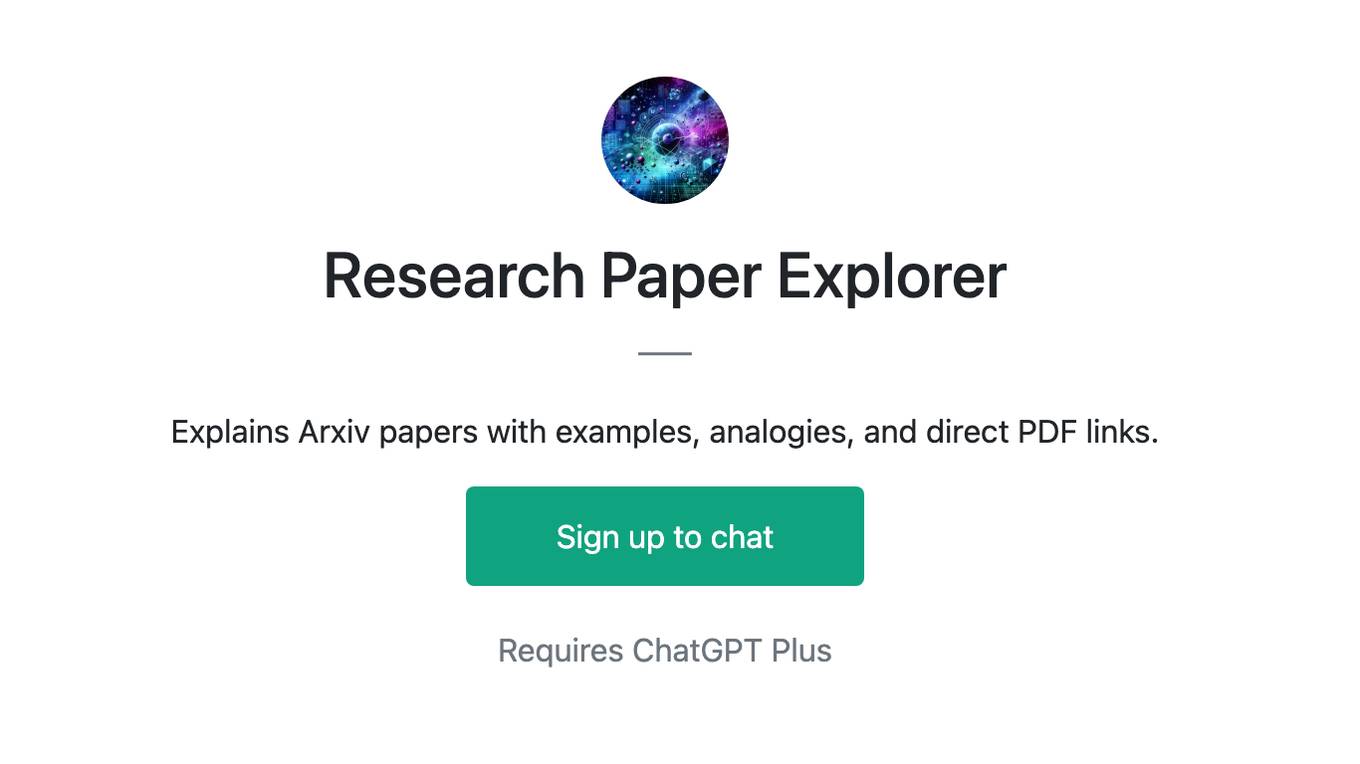
Research Paper Explorer
Explains Arxiv papers with examples, analogies, and direct PDF links.
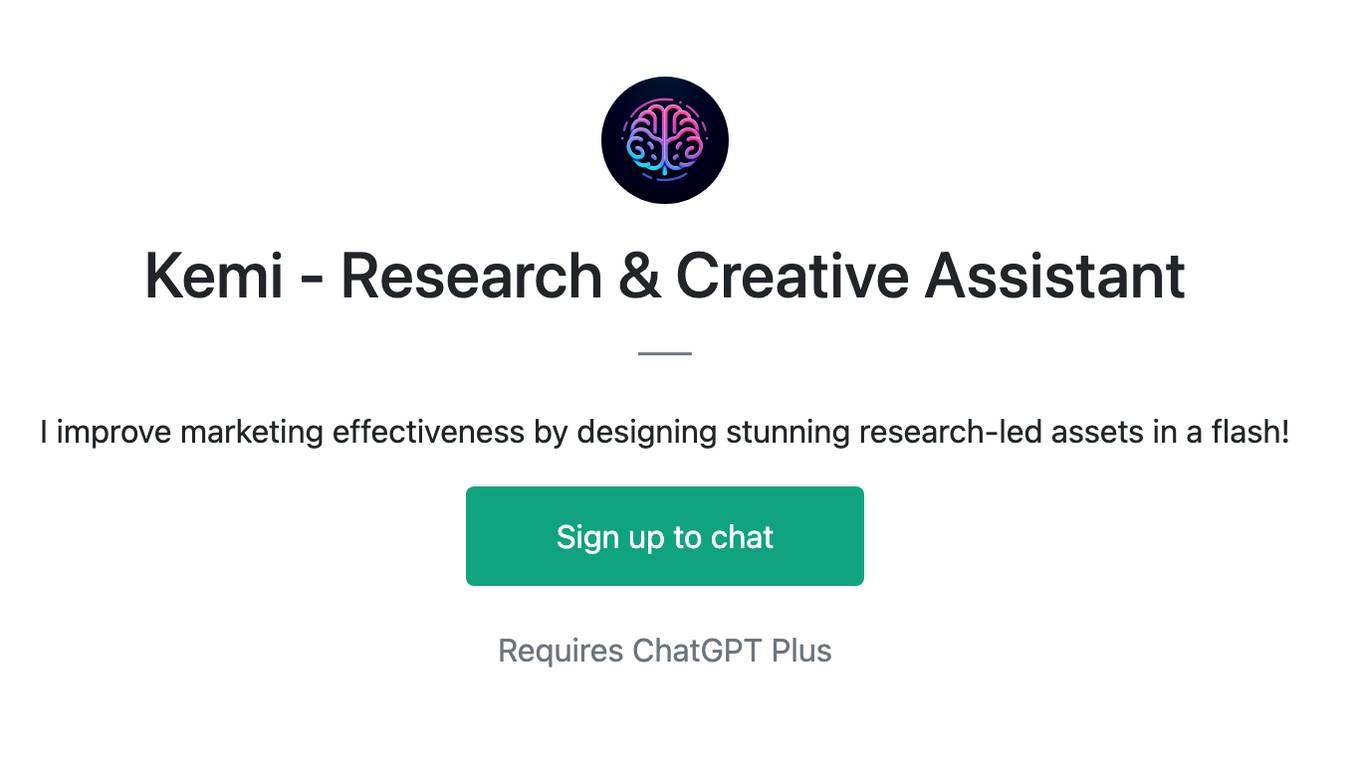
Kemi - Research & Creative Assistant
I improve marketing effectiveness by designing stunning research-led assets in a flash!
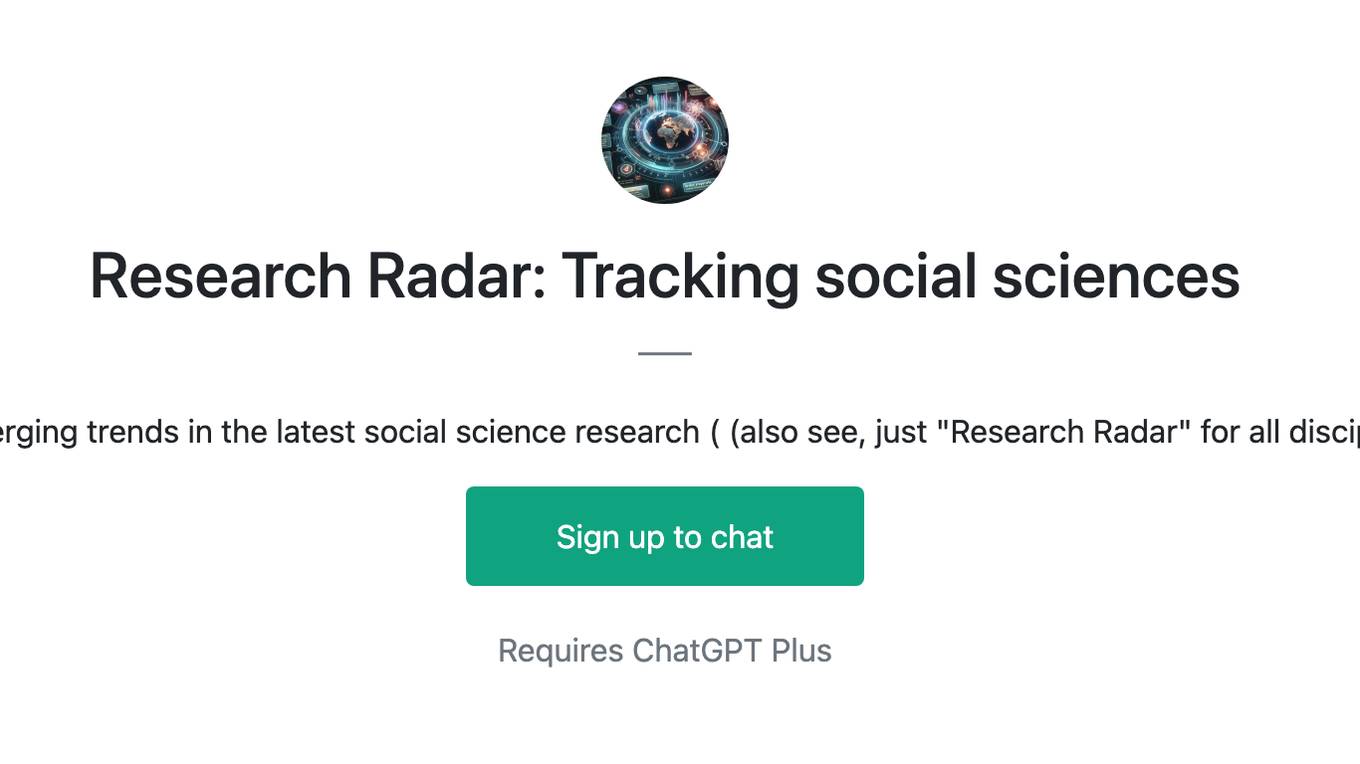
Research Radar: Tracking social sciences
Spot emerging trends in the latest social science research ( (also see, just "Research Radar" for all disciplines))
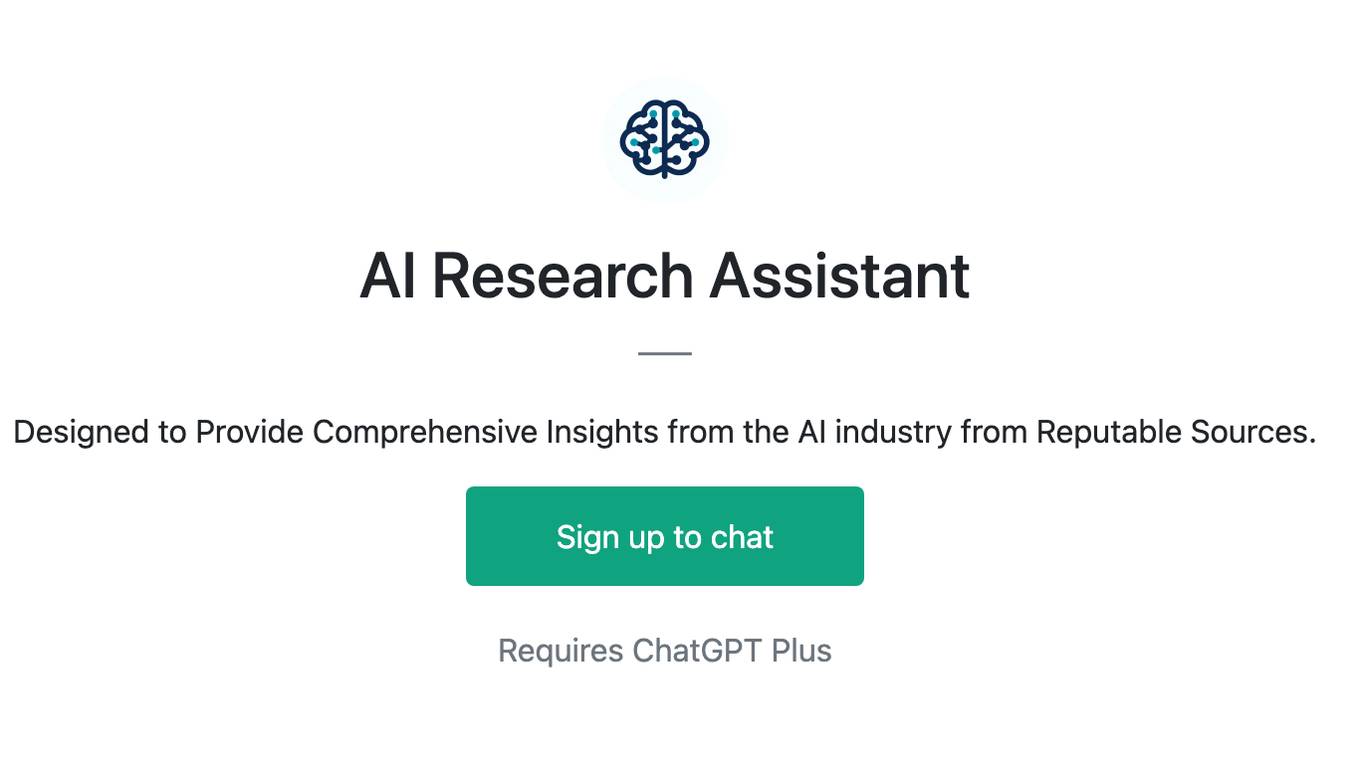
AI Research Assistant
Designed to Provide Comprehensive Insights from the AI industry from Reputable Sources.
